The competitiveness of a social Europe
Opinion piece by CESI Secretary General Klaus Heeger


All Posts
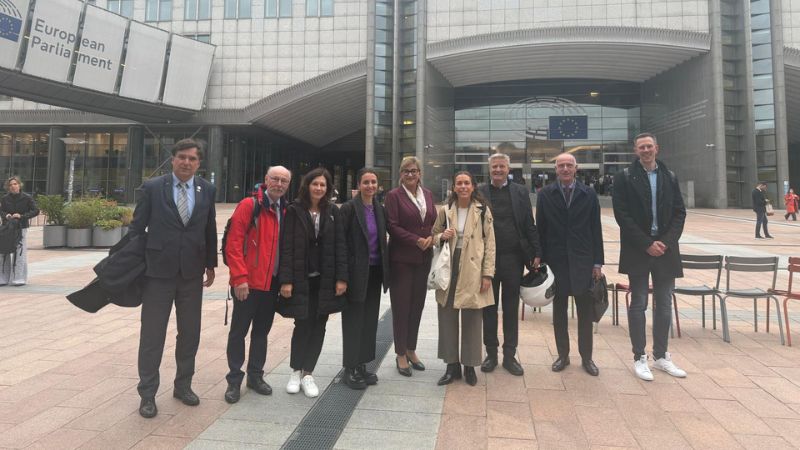

Celebrating EU’s teachers: CESI calls for more investments in education
At a time when teacher shortages, low salaries and unsustainable workloads threaten Europe’s education systems, EU educational leaders and CESI teacher representatives gathered yesterday in Brussels in the European Parliament for an ‘Honouring the Teaching Profession in Europe’ event.
In the context of CESI’s EU-co-funded PillACT project, the event celebrated teachers while lucidly examining the challenges they face and proposing bold, sustainable solutions to raise the status and attractiveness of the profession – an attempt show the urgency to make necessary public investments in the teaching profession and ensure that the forthcoming EU Teachers Agenda, Quality Jobs Roadmap and the Pilot on European School Alliances provide solutions for a teaching profession that remains respected and future-proof in line with the European Pillar of Social Rights.
The event opened with a welcome by CESI Secretary General Klaus Heeger who emphasised: "Teachers are the backbone of democratic societies. Europe must invest in them not only in words but in policy, support and recognition."
The host of the event, MEP Hristo Petrov, Vice-Chair of the European Parliament Committee on Culture and Education (CULT), sent a strong message in support of improving the working conditions of teachers and better and more concrete investments in quality education EU-wide.
Key themes for the day included teacher well-being, fair compensation, professional respect, working conditions, digital transformation, and social dialogue.
Luc Viehé from CESI’s French teacher union Spelc described teachers’ frustration with a lack of recognition and little to no valorisation and warned of a brain drain if working conditions are not improved.
Marcello Pacifico from CESI’s Italian teacher union CISAL/ANIEF) pointed to chronic underfunding of schools and the precarious employment conditions of many teachers in Italy: “We cannot expect excellence when teachers struggle with bad working conditions: Precarious employment rates are very high in Italy and salaries are miserable. Salaries of teachers at the end of their careers remains below the European average, half that of German teachers and a third that of French teachers. There is no career progression, with long-term seniority increases denied to precarious staff, and no recognition of teachers’ public service.”
Simone Fleischmann from the German Civil Service Federation dbb underlined shortages of staff in German education systems, and mental health pressures that educators face.
Laviniu Lacusta from the Romanian Free Trade Union in Pre-University Education (USLIP) referred to an existing educational crisis in Romania and disparities between urban and rural areas: “To ensure the right to education we cannot continue to underinvest. Too many budget cuts against teachers for less than 1% savings to the annual budget is a offence against citizens overall and it will be a cost to pay in the future.”
Closing the breakfast hearing, CESI Youth Representative Matthäus Fandrejewski called for renewed ambition: “Teachers are the architects of our future. If we neglect them, we neglect Europe’s youth. Push for concrete reforms in education and teacher training. Defend the role of student and youth unions as key democratic actors. Advocate for a holistic approach to skills that prepares young people both for work and for active citizenship. Trade unions must adapt to accompany workers throughout their life.”
Following the breakfast, discussions continued at CESI’s headquarters with the meeting of CESI’s Expert Commission on Education, Training and Research. The agenda included elections for new leadership – Luc Viehé (Spelc) as new President and Ettore Michelazzi (CISAL/ANIEF) as Vice-President. The agenda followed with exchanges on how national systems are implementing the European Pillar of Social Rights in the education sector. Nuria Diez Guardia from the European Commission’s Directorate-General for Education, Youth, Sport and Culture, in charge of co-authoring the forthcoming EU Teachers’ and Trainers’ Agenda, presented policy tools to be used in advocating for teacher’s rights, such as the European Semester.
A position was adopted with key priorities for a new EU Teacher’s Agenda, calling to:
1. Raise the status and ensure a better social recognition of the teaching profession as a cornerstone of Europe’s social fabric, by strengthening public esteem and trust in teachers.
2. Guarantee decent remuneration and professional stability through competitive wages comparable to other tertiary-educated professionals, secure contracts, and career-long employment prospects.
3. Foster better working conditions across the EU, including manageable workloads, healthy psychosocial environments, and safe workplaces. S
4. Ensure adequate public investments in education, with earmarked support for digital infrastructure, connectivity, and equal access to IT tools and learning resources for all students and teachers.
5. Provide high-quality initial and continuous training for teachers, ensuring they acquire strong pedagogical, psychological, and digital competences, with training conducted within working hours.
6. Integrate in particular digital competences for teachers systematically into teacher education and professional development, equipping educators to use digital tools, AI, and hybrid learning models effectively.
7. Promote professional mobility by strengthening EU exchange programmes.
8. Guarantee teacher involvement in educational reforms, ensuring they are developed through genuine social dialogue with trade unions and professionals.
9. Ensure an effective protection of education professionals from cyberbullying and online harassment, with strong legal safeguards, awareness-raising and training for both staff and pupils.
10. Establish and enforce a European code of ethics and shared values in education, centred on respect, tolerance, equality, and the defence of human dignity.
The full position is available here.
At a time when teacher shortages, low salaries and unsustainable workloads threaten Europe’s education systems, EU educational leaders and CESI teacher representatives gathered yesterday in Brussels in the European Parliament for an ‘Honouring the Teaching Profession in Europe’ event.


One year after the Draghi report: Build competitiveness together with workers
A high level conference yesterday in Brussels discussed how Europe can secure its economic competitiveness in the light of increasing global competition. According to CESI, competitiveness must be achieved together with workers and unions, not on their back.
The Draghi Report makes one thing clear: Europe needs to become faster, more innovative, and more resilient if it is to hold its ground in a multipolar world. Yet, as CESI stressed in its recently adopted Resolution on a New EU Roadmap for Quality Jobs, the path to competitiveness cannot and must not be paved with weaker labour rights, lower wages or social deregulation. This would only hollow out Europe’s most important resource – its people.
Instead, CESI calls for an agenda where simplification for businesses goes hand in hand with investment in workers. That means:
- Reducing unnecessary bureaucracy for companies – without undermining the enforcement of existing labour rights.
- Higher investment in quality education, vocational training and lifelong learning, so that workers can thrive in rapidly transforming industries.
- Enhanced occupational health and safety in all sectors, including those reshaped by green and digital transitions.
- Ensuring that collective bargaining and inclusive social dialogue are placed at the heart of the EU’s competitiveness strategy.
CESI Secretary General Klaus Heeger said: “A workforce that is skilled, healthy and secure is not a drag on competitiveness – It is its very foundation. Europe needs competitiveness, but not at the expense of the rights and health of its workers. A workforce that is respected, well-trained and healthy is Europe’s greatest competitive advantage.”
One year after the Draghi report, the message from CESI is clear: Competitiveness and quality jobs must advance together. Europe will only succeed globally if it builds strength by investing in its workers and upholding its social model.
Klaus Heeger added: “We welcome Ms von der Leyen’s announcement of a new legislative EU Quality Jobs Act during her State of the Union speech at the European Parliament in Strasbourg last week. This will be a chance to make sure that current challenges in economies and labour markets – digitalisation, green measures, skills shortages and enhanced competitiveness – are addressed and managed in sustainable ways, together.”
A high level conference yesterday in Brussels discussed how Europe can secure its economic competitiveness in the light of increasing global competition. According to CESI, competitiveness must be achieved together with workers and unions, not on their back.
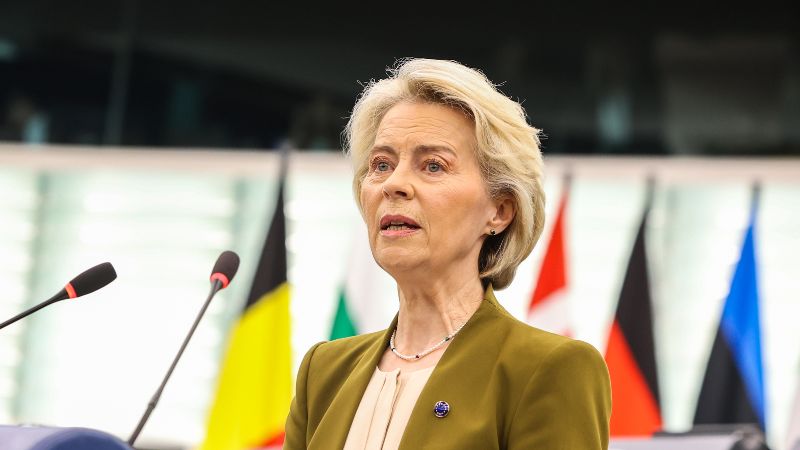

CESI reaction to the 2025 State of the Union
It is time to turn high-level announcements into tangible improvements for people’s lives, in workplaces, in public services, and in the armed forces.
In her 2025 State of the Union speech, President Ursula von der Leyen urgently warned of the threats the EU is faced with, she conjured the urgency of determined and above all unified EU action and reaction: “Europe is in a fight. A fight for a continent that is whole and at peace. For a free and independent Europe. A fight for our values and our democracies. A fight for our liberty and our ability to determine our destiny for ourselves. Make no mistake – this is a fight for our future”, she said.
Defence and preparedness
The sense of urgency is shared by CESI, which has been calling for stepping up the EU’s defence and preparedness capabilities for many years. In this context, CESI also welcomes the EU’s Internal Security and Preparedness Union Strategies as vital milestones for safeguarding citizens against complex and cross-border threats. These strategies underline that security today is not only about external defence but also about resilience at home – from tackling cybercrime and disinformation to ensuring that public services are equipped to protect the most vulnerable.
The announced Roadmap for European Defence Readiness and a new European Defence Semester underlines the Commission’s determination to bolster its strategic autonomy.
While this is strongly supported, CESI insists they can only succeed if the people who serve in Europe’s armed forces – both military and civilian – are placed at the heart of these initiatives. Investments in new capabilities and industries are vital, but they will only be credible if matched by improvements in the working conditions, wellbeing, and recognition of Europe’s defence personnel.
For CESI, the involvement of military unions and workers’ representatives in shaping the defence agenda is indispensable. Their practical experience is crucial to ensuring operational readiness, sustainability, and democratic legitimacy.
Defence cannot be developed solely as a top-down exercise: it must be built on genuine engagement and consultation with those who carry out the mission every day. Only in this way can a future European Defence Union be both effective and fair.
The Quality Jobs Act – An opportunity that must deliver for workers
In addition to defence matters, Ms von der Leyen also laid out a wide-ranging agenda: from competitiveness measures, industrial strategy and digital regulation to climate adaptation, and migration.
While the breadth of themes reflects the unseen challenges the EU currently faces, the speech contained no new elements for workers and trade unions. Noteworthy was solely the announcement of a forthcoming legislative Quality Jobs Act – in addition to, or as part of, the already-planned Quality Jobs Roadmap.
On other sectors central to CESI’s membership – such as health, education, postal and telecom services, and public administrations – the address offered little that was new.
The proposal for a legislative Quality Jobs Act could be a major step forward, but the speech provided no details or timeline.
CESI stresses that the Act must not remain a vague political promise: it must build directly on the priorities outlined in the Quality Jobs Roadmap developed together with our affiliates.
This means tackling precarious work and in-work poverty, ensuring fair wages and decent conditions in all sectors, strengthening social dialogue and collective bargaining, and guaranteeing real opportunities for skills development and lifelong learning. Above all, it must enshrine the principle that quality work is the foundation of Europe’s competitiveness and resilience.
CESI calls on the Commission to engage trade unions closely in drafting the proposal and to ensure that the Act becomes a genuine pillar of a more social Europe.
Klaus Heeger, Secretary General of CESI, said: “We appreciate President von der Leyen’s commitment to quality jobs and stronger European defence. But appreciation is not enough – what workers across Europe now urgently need are concrete steps and practical solutions. It is time to turn high-level announcements into tangible improvements for people’s lives, in workplaces, in public services, and in the armed forces. CESI and its affiliates stand ready to work with the European institutions to make this a reality.”
It is time to turn high-level announcements into tangible improvements for people’s lives, in workplaces, in public services, and in the armed forces.
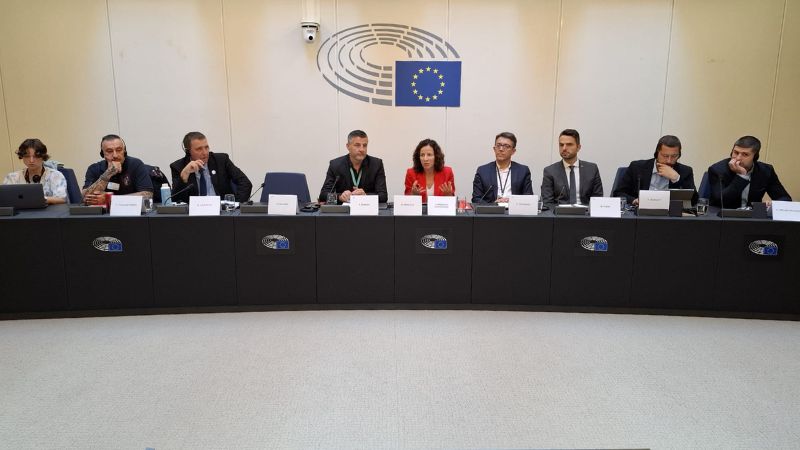

CESI speaks in European Parliament Intergroup on Civil Protection on working conditions of firefighters
On September 9, CESI was invited by the European Parliament’s Intergroup on Resilience, Disaster Management and Civil Protection to contribute expertise from its firefighter staff unions.
The exchange, held in in the European Parliament in Strasbourg, placed the spotlight on firefighters’ employment conditions and occupational health and safety as well as and the EU’s broader role in addressing natural disasters and wildfires.
The programme brought together MEPs from the Intergroup including its Vice Chairs Pascal Arimont (EPP), Grégory Allione (Renew), Christophe Clergeau (S&D) and Matej Tonin (EPP) and the European Commission Executive Vice-President for Social Rights and Skills, Quality Jobs and Preparedness Roxana Mînzatu.
Together with firefighter representatives from French, Greek and German union members ofCESI – Alain Laratta (Avenir Secours), Frédéric Monchy (SNSPP-PATS), Alexandros Melachroinos (EPAYS) and Valentino Tagliafierro (dbb) – discussions centred on increasing staffing shortages in fire services, wage injustices, long and impractical working hours as well as the growing risks firefighters face during their work – from toxic exposure to mental health strains and work-related cancers.
CESI presented its Firefighters’ Manifesto, which sets out key demands for betterrecognition, safer working environments, and stronger EU-level commitments, among them:
- Adequate staffing levels across Member States to avoid dangerous shortages.
- Improved pay, reasonable working hours and stronger enforcement of EU employment legislation.
- Recognition of occupational health risks, with tailored mental health support and early retirement options.
- EU-wide minimum safety standards for firefighters and adequate investment in protective equipment.
- A stronger EU Civil Protection Mechanism and the development of a European firefighting strategy.
Speaking after the debate, CESI Secretary General Klaus Heeger stressed the urgency ofaction: “Firefighters risk their lives to protect us all. It is unacceptable that they continue to face understaffing, precarious conditions, and insufficient protection. The EU must treat investment in firefighting as whatit really is: a matter of public safety and resilience.”
He also underlined the need for a strengthened European approach to disaster management: “Climate change makes wildfires and other disasters more intense and more frequent. No Member State can face these challenges alone. Strengthening EU solidarity mechanisms and creating common standards for firefighters is an investment in Europe’s collective security.”
CESI welcomed the commitment of the European Parliament Intergroup to continue engaging with social partners and unions in this field. As the summer of 2025 once again showed – with record heatwaves and devastating wildfires across the continent – ensuring that firefighters are properly supported, equipped and protected is a matter of urgency for Europe’s future.
On September 9, CESI was invited by the European Parliament’s Intergroup on Resilience, Disaster Management and Civil Protection to contribute expertise from its firefighter staff unions.
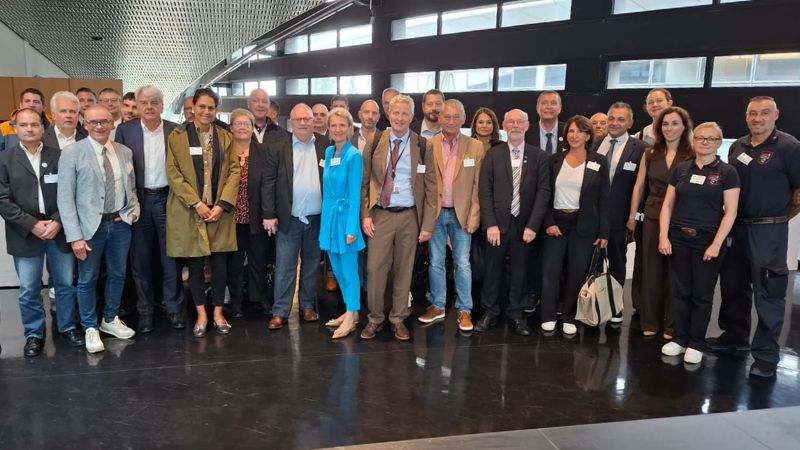

EqualPro conference in the European Parliament in Strasbourg on EU women’s rights policies
On September 9, CESI in cooperation with MEP Grégory Allione (Renew), held a high-level conference in the European Parliament in Strasbourg on ‘European equality policies made in Brussels: What added value for France?’
The event, which was held in the context of CESI’s EU co-funded project ‘Towards more gender equality at work’ (eQualPRO),brought together policymakers, trade unionists from across CESI’s membership and civil society representatives from France to discuss the EU’s achievements in advancing women’s socio-economic rights France and the concret eimplementation of gender equality policies in the country.
Opening the conference, CESI Secretary General Klaus Heeger welcomed participants by stressing the importance of dialogue between EU institutions, Member States and trade unions: “Equality policies cannot remain abstract strategies on paper. They must be translated into tangible improvements in the daily lives of women and men across Europe – in the workplace, in education and in society at large.”
A first panel featured European Parliament Committee Chairs MEP Li Andersson (Committee on Employment and Social Affairs), MEP Lina Gálvez (Committee Women’s Rights and Gender Equality) and MEP Nela Riehl (Committee on Culture and Education), who presented the EU’s progress and upcoming priorities for gender equality, notably in the context of the recent EU Roadmap for Women’s Rights. They highlighted in particular links between equality, skills, competitiveness and resilience in times of industrial transitions.
Sarah Mantah of the French Coordination Group to the European Women’s Lobby (CLEF) shared perspectives on how EU women’s rights and equality initiatives influence national policies in France, particularly in the public sector and in education.
The conference then gave the floor to Romana Deckenbacher, Vice-President of CESI’s Commission on Women’s Rights and Gender Equality, who outlined CESI’s trade union demands – including on pay transparency, better work-life balance and stronger measures against workplace harassment.
A dynamic exchange followed with French CESI-affiliated trade union leaders Pascal Kessler (FA-FP), Alain Laratta (Avenir Secours), Frédéric Monchy (SNSPP-PATS), Luc Viehé (Spelc) and Stanislas Gaudon (CFE-CGC). They shared experiences on promoting equal opportunities in sectors such as civil protection, public administration and education, while identifying barriers that women still face in career progression.
In his closing remarks, Klaus Heeger emphasised CESI’s commitment to ensuring that equality remains a core pillar of European social policy: “For CESI, gender equality is not a side issue – it is a trade union priority. Only by empowering women equally in the labour market and in society can Europe unlock its full potential.”
On September 9, CESI in cooperation with MEP Grégory Allione (Renew), held a high-level conference in the European Parliament in Strasbourg on ‘European equality policies made in Brussels: What added value for France?’
.png)

Honouring the teaching profession in Europe
Breakfast hearing at the European Parliament hosted by MEP Hristo Petrov, Vice-Chair of the Committee on Culture and Education
Venue: online & in Brussels
Languages: EN-FR-DE-IT
Honouring the Teaching Profession in Europe
Breakfast hearing at the European Parliament, room SPINELLI 5G1
Hosted by MEP Hristo Petrov, Vice-Chair of the Committee on Culture and Education
Dear members,
You are warmly invited to attend an honorary breakfast hearing on 25 September at the European Parliament headquarters in Brussels, or to join us online.
This event, hosted by Hristo Petrov, Member of the European Parliament and Vice-Chair of the Committee on Culture and Education, will focus on raising awareness of the vital role and value of the teaching profession across the EU as well as the role of schools partnerships and mobility to foster high-quality education.
Across the European Union, poor working conditions and critical staff shortages are placing increasing pressure on education systems, threatening not only the quality and access to learning, but also the social and economic resilience of our societies. As demand for qualified educators rises, many countries are experiencing a sharp decline in recruitment and retention—driven by low salaries, unsustainable workloads, and a lack of professional progression.
The forthcoming EU Teachers Agenda, fostered by instruments such as the European Pillar of Social Rights with its main principles on, the European Semester, the European Education Area, and the Union of Skills present strategic opportunities to champion the teaching profession.
These frameworks empower trade unions and civil society to shape national reforms and EU priorities in education. As CESI´s Teachers’ Manifesto addresses the digital transformation of teaching, this event aims at amplifying the voices of teachers’ unions from across Europe to advocate for fair pay, professional autonomy, supportive policy environments, and sustainable investment—key to restoring teaching as a respected, attractive, and future-proof profession.
The breakfast hearing would also be the opportunity to exchange views on the forthcoming Pilot on European School Alliances. This initiative aims to increase pupil and teacher mobility, cross-border cooperation between schools in the European Union and innovative teaching methods.
Teachers will play a crucial role in the success of this project, as the primary drivers for curriculum innovation and better outcomes for students. Thus, drawing on their solid experience is essential. It will also be an additional opportunity to develop teachers' capacities and skills by providing the necessary means to promote impactful school exchanges with high educational value.
Proposed agenda:
1. 09:00 – Welcome address
MEP Hristo Petrov (Renew Europe), Vice-Chair of the Committee on Culture and Education
2. 09:15 – Introduction and key remarks
Klaus Heeger, Secretary General of CESI
3. 09:20 – A French perspective to the teaching profession and challenges
Luc Viehé (Spelc), President of CESI’s Expert Commission ‘Education, Training and Research’
4. 09:30 – An Italian perspective to the teaching profession and challenges
Marcello Pacifico (CISAL), President of CESI’s Europe Academy
5. 09:40 – A German perspective to the teaching profession and challenges
Simone Fleischmann (Deputy Chair of the dbb)
6. 09:50 – A Dutch perspective to the teaching profession and challenges
Daniëlle Woestenberg (CNV), Vice-President of CESI’s Expert Commission ‘Education, Training and Research’
7. 10:00 – A Romanian perspective to the teaching profession and challenges
Laviniu Lacusta, President of the Romanian Free Trade Union in Pre-University Education
8. 10:10 – Looking towards the future of education: closing remarks from a youth perspective
NN, CESI Youth Representative
***
Following the breakfast hearing, discussions will continue at the CESI premises with the meeting of the CESI’s Expert Commission ‘Education, Training and Research’, held in the framework of EU co-funded PillACT project.
1. 11:00 – Opening of the meeting of the Expert Commission on 'Education'
Klaus Heeger, Secretary-General of CESI
2. 11:05 – Adoption of the agenda
Klaus Heeger, Secretary-General of CESI
3. 11:10 – Election of a new President and two Vice-Presidents of the Expert Commission, following CESI’s Congress in December 2024
4. 11:15 –Priorities of the Expert Commission in CESI’s 2025 work programme in line with the European Pillar of Social Rights and CESI’s PillACT project
Raluca Radescu, Policy Officer, CESI
5. 11:20 – The Quality Job Roadmap and the Teachers’ role in supporting EU ambitions in light of the European Pillar of Social Rights
NN, European Commission, Cabinet of the Executive Vice-President for Social Rights and Skills
Hendrik Meerkamp, Senior Policy Advisor, CESI
6. 11:50 – QVO VADIS EU? Latest Developments within the European Education Area and their link to the implementation of the European Pillar of Social Rights
Nuria Diez Guardia, European Commission, Directorate-General for Education, Youth, Sport and Culture, Unit B.2 Schools and multilingualism
12:30 – 13:30 Light lunch
7. 13:30 – Exchanges of information on national practices for the implementation of the European Pillar of Social Rights
8. 14:00 – Education for a digital-era citizenship: Upholding European values and social rights in the context of the European Pillar of Social Rights
Giuseppina Tucci, OBESSU
9. 14:30 – Adoption of a joint teacher position for CESI’s PillACT project
10. 14:50 – Any other business and decision on the date of the next meeting
Luc Viehé (Spelc), President of CESI’s Expert Commission ‘Education, Training and Research’
*The event takes place in the frame of CESI's 'PillAct' project.
Breakfast hearing at the European Parliament hosted by MEP Hristo Petrov, Vice-Chair of the Committee on Culture and Education


EqualPro conference on EU gender equality policies in Strasbourg on September 9
On September 9, CESI will hold an EqualPro project conference on EU gender equality in the European Parliament in Strasbourg.
The event, which is open to CESI affiliates only, will seek to map out the added value and achievements of EU gender equality policies in France and flag according worker demands, as part of CESI's co‐funded project 'Towards more gender equality at work' (EqualPro).
It will see the participation of numerous MEPs from different political groups, including the Chairs of the European Parliament Committees on Culture and Education (CULT), Women's Rights and Gender Equality (FEMM) and Employment and Social Affairs (EMPL), MEPs Nela Riehl, Lina Gálvez and Li Andersson, who will speak on achievements of the EU for the socio-economic empowerment of women and the new EU Roadmapfor Women’s Rights to guide EU action on gender equality.
Sarah Mantah, Board Member of the French CoordinationGroup to the European Women’s Lobby (CLEF), will speak on the implementation of EU gender equality policies in the French private and public sectors.
Thereafter, Romana Deckenbacher, Vice-President of CESI’s statutory Commission on Women’s Rights and Gender Equality, will interevene to sketch CESI's trade union demands on gender equality and women’s rights.
Numerous representatives from CESI's French trade union members will provide testimonials to put forward their experiences and expectations concerning EU gender equality policies in France.
The event will be hosted by French MEP Grégory Allione and moderated by CESI Secretary General Klaus Heeger.
On September 9, CESI will hold an EqualPro project conference on EU gender equality in the European Parliament in Strasbourg.
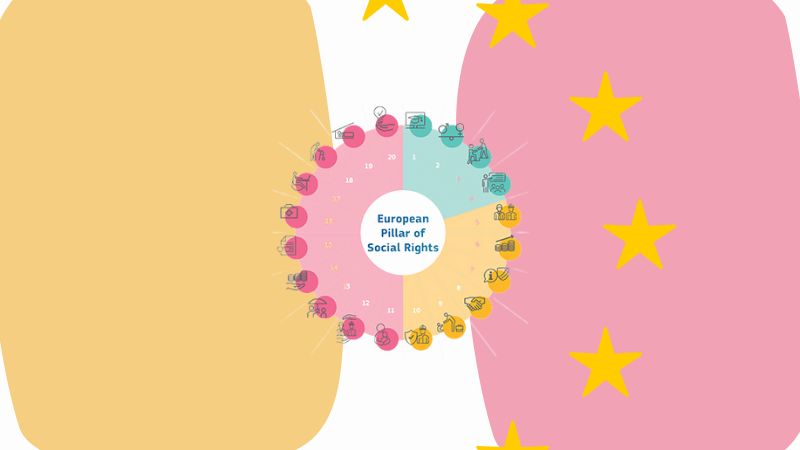

New position on the implementation of the European Pillar of Social Rights
CESI adopted a new position on the implementation of the European Pillar of Social Rights.
The position, which forms the basis for a response to a consultation on the subject matter by the European Commission, puts forward the following issues to make Europe better for workers and their families:
- Strengthening social dialogue and trade union pluralism. A renewed Action Plan must ensure that all workers have a strong voice in shaping the future of work, regardless of the trade union they are affiliated to. A genuine strengthening of social dialogue requires balanced participation of all representative unions at bothEU and national level. The role of social partners must be reinforced inpractice to this end.
- Ensuring fair wages and decent working conditions, in particular through a ful land effective implementation of the EU Minimum Wage Directive 2022/2041, EU Pay Transparency Directive 2023/970 and EU Transparent and Predictable Working Conditions Directive 2019/1152.
- Tackling precarious employment and abusive practices, through revised Directives on Fixed-Term, Part-Time, and Temporary Agency Work to close gaps that permit discrimination vis-à-vis permanent employees, a ban on unpaid and exploitative traineeships,ensuring that at least all post-curriculum traineeships are fairly remunerated, and binding social clauses in EU public procurement and state aid rules ensuring public funds only benefit companies that respect workers’ rights, apply collective agreements and guarantee minimum wages.
- Managing the digital and green transitions responsibly, through adedicated EU Directive on a Right to Disconnect and a Directive on Artificial Intelligence (AI) at Work.
- Promoting public services as a cornerstone of social and economic resilience,through adequate investments in public service jobs and working conditions across education, health care, justice, post and telecoms, defence and overall public administrations to attract qualified staff and enable it to perform well.
- Fostering training and lifelong learning, by stepping up measures to reduce school dropouts and strengthen apprenticeships and vocational education and training (VET) and supporting a right to lifelong learning, with frameworks that allow workers to adapt their skills and remain employable throughout changing career trajectories.
- Combating violence, discrimination and inequality at work, a through a full transposition and enforcement of the EU Directive on Combating Violence against Women 2024/1385 and new measures against third-party violence in public-facing professions, particularly in health care, education, law enforcement and public administrations.
CESI Secretary General Klaus Heeger said: "For CESI it remains a priority to bring the Pillar closer to national legal systems, national social dialogues and national trade unions and employer organisations. As a set of principles that are not directly enforceable and which to a considerable extent span to subject matters that are outside the scope of EU competence, it is vital that the EU and national levelpolitical agendas actively refer to the principles of the European Pillar of Social Rights as a basis for (and to strengthen) their collective bargaining power. EU and national level social partners must use the Pillar of Social Rights as a reference compass for their activities and claims, not least when negotiating new collective agreements. EU promises must be turned into real tools for workers, otherwise there is a risk that it will not meet the expectations that citizens and workers have placed in it."
CESI's full position can be accessed here.
CESI adopted a new position on the implementation of the European Pillar of Social Rights.
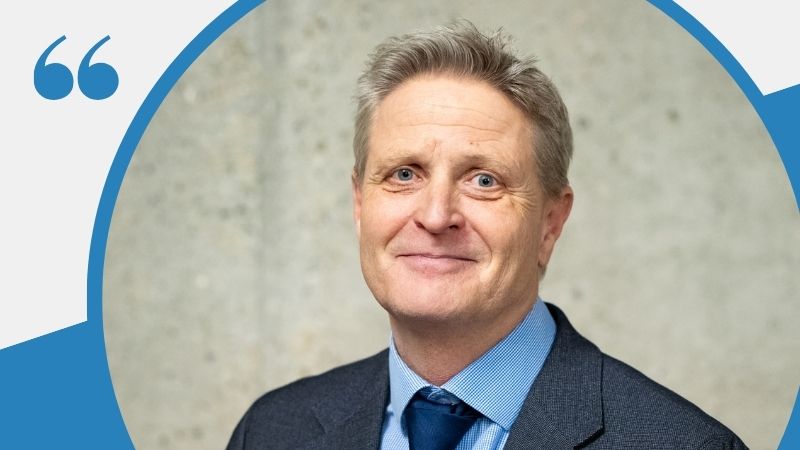

From our Summer Days to a busy September | Editorial of SG Klaus Heeger
"That is what we will do this month - together with you."
Dear members, partners and friends,
With the energy of June still fresh - the CESI Summer Days and our CESI Youth Congress ushering in new leadership and ideas - we enter September determined to turn momentum into delivery.
We open our second half of the year in Strasbourg on Tuesday, 9 September, with an ‘eQualPro’ project event in the European Parliament on “European equality policies made in Brussels: What added value for France?” In the presence of high-level speakers, among them three European Parliament Committee chairs, this session will take stock of the EU’s equality acquis and the new Roadmap for Women’s Rights - and we will use it to connect policy to practice, helping workers’ representatives advance gender equality at work in the digital age.
That same afternoon, also in Strasbourg, we will shift focus from principles to protection. With a delegation comprising several expert speakers from among our trade union membership in the European Parliament Intergroup on Resilience, Disaster Management and Civil Protection, we will put firefighters’ working conditions and occupational health and safety under the spotlight.
Later in September we will bring the conversation to Brussels and to a sector that shapes Europe’s future every day: education. On Thursday, 25 September, we will host a European parliamentary breakfast hearing on “Honouring the Teaching Profession in Europe”.
Teachers’ unions from several countries will share the reality behind the headlines -shortages, workloads, careers that too often stall - and set out what it takes to make teaching attractive again: fair pay, professional autonomy and sustained investment. We will also look ahead to a Pilot on European School Alliances, mobility to cross-border cooperation in education, and innovative pedagogy.
The morning in the European Parliament will be followed by a working meeting of our statutory Expert Commission on Education, Training and Research at CESI’s premises, held in the framework of our EU co-funded PillACT project, to strengthen the implementation of the European Pillar of Social Rights in the area of education through real social-partner engagement.
These September meetings and events are only a few among many, but they are representative of how CESI works: we try to bring Europe closer to workers, and to translate principles into practice with our members.
From the Summer Days and the renewal brought by our CESI Youth Congress in June to a September dense with delivery, the message is consistent. Europe is at its best when institutions listen to practitioners and when unions have the tools to turn fine words into fair work.
That is what we will do this month - together with you.
With kindest regards,
Klaus Heeger
"That is what we will do this month - together with you."


CESI affiliates Synnöve Nüchter and Eva Fernández Urbón elected into EWL Board of Administration
At the General Assembly of the European Women’s Lobby (EWL) on June 7-8, CESI’s affiliates Synnöve Nüchter and Eva Fernández Urbón were elected into the EWL's Board.
Synnöve Nüchter from the German Civil Service Federation dbb union will be a full member in the Board of Administration, Eva Fernández Urbón from the Spanish Central Independent and Public Employees’ Trade Union CSIF will serve as alternate. The mandates run until 2027 when new elections will take place.
CESI has been a member of the EWL since 2006. Synnöve Nüchter succeeds Carmen Jaffke from CESI’s Luxembourgish member organisation CGFP, who did not stand for election again. Eva Fernández Urbón was already a Board member and was re-elected. Both have an impressve track record as trade unionists and supporters of gender equality and women’s rights.
Synnöve Nüchter has been an affiliate of the dbb for more than 15 years and currently serves as a Board member in its Feder Women's Council. She is also a member of the National Council of German Women's Organisations (Deutscher Frauenrat). At European level, she chairs CESI's staturoy Commission on Women's Rights and Gender Equality.
Eva Fernández Urbon is National Secretary for Equality and Social Responsibility at CSIF and has been a member of union's National Executive Committee since 2019. She has been working on women´s rights and gender equality as a trade unionist for the past 15 years and has participated in numerous conferences and published articles related to issue such as ‘Gender gap and university: two realities that feedback’ or ‘The trade union role on the path to equality’. Since 2021, she has been President of CESI’s statutory Commission on Employment and Social Affairs.
CESI Secretary General Klaus Heeger said: “I am pleased that CESI remains actively represented within the EWL, the leading platform for women’s rights in Europe. With their strong expertise and trade union experience, Synnöve and Eva will ensure that the perspective of independent trade unions is well heard. For CESI, advancing gender equality and equal opportunities is a key priority – especially in the world of work but also across society as a whole.”
The names of all elected Board members is available on the website of the EWL. The General Assembly on June 4-7 also saw the election of the EWL Executive Committee and its new President, Dina Loghin from the Romanian Women’s Lobby. Further details are available here.
At the General Assembly of the European Women’s Lobby (EWL) on June 7-8, CESI’s affiliates Synnöve Nüchter and Eva Fernández Urbón were elected into the EWL's Board.


New position on a new EU gender equality strategy
As part of a consultation on a new EU Gender Equality Strategy 2026-2030, CESI issued a new position on priorities for improved women's rights and equal opportunities in Europe.
In the position, CESI demands EU measures in the following issue areas:
- Strengthening freedom from violence and harassment: CESI urges full and effective implementation of the recently adopted EU Directive on combatting violence against women and domestic violence and requests that the EU supports Member States, especially those yet to ratify the Istanbul Convention, with capacity-building, legal assistance, and social partner engagement.
- Closing the gender ay and pension gaps: CESI calls for the rigorous enforcement of the EU Pay Transparency Directive, with systematic monitoring, resourcing for labour inspectorates, and involvement of trade unions/worker representatives in pay audits and collective bargaining processes.
- Breaking the glass ceiling: CESI recommends expanding the scope of binding gender quotas in the EU (women on boards directive) to include not only corporate boards but also public administrations and managerial positions at least in mid-sized companies. Access to flexible, remote and part-time leadership roles must be increased, particularly in public service and traditionally male-dominated sectors.
- Fair distribution of care and gender equality in care work: The strategy should promote policies valuing care work as skilled labour, with decent pay and protections, particularly for migrant and informal care workers. Building on the Work-Life Balance Directive, CESI supports stronger EU minimum standards on non-transferable, paid parental leave for both parents, aiming at an equal-earner/equal-carer model.
- Ensuring equal access to quality employment and working conditions: CESI calls for reinforced gender mainstreaming in all future employment-related legislation and legislative fitness checks. The European Commission and its agencies must strengthen monitoring of gender-based occupational segregation, working conditions in precarious jobs, and violence in the workplace.
- Advancing digital and STEM inclusion: The strategy must invest in upskilling and reskilling programmes tailored to women for digital, AI, and STEM sectors, alongside targeted outreach for underrepresented groups (e.g. Roma, rural women, and women with disabilities). Gender-sensitive AI regulation should be a priority: algorithms must be trained on diverse, unbiased datasets, and automated decision systems should be audited for gender impacts.
- Gender budgeting and monitoring mechanisms: Gender budgeting must become a binding principle for all EU financial instruments, including the EU’s structural and investment funds and the Recovery and Resilience Facility (RRF).
CESI Secretary General Klaus Heeger said: "The next EU Gender Equality Strategy must be more than a declaration of intent – it has to deliver concrete and measurable progress for women across Europe. We need binding rules accompanying soft law and awareness raising, and we need strong enforcement of legislation and effective resources to ensure that equality becomes a reality in the workplace, in public life and at home. Gender equality is not only a matter of fairness and human rights – it is also a prerequisite for a resilient, innovative, and socially cohesive Europe."
The full position is available here.
As part of a consultation on a new EU Gender Equality Strategy 2026-2030, CESI issued a new position on priorities for improved women's rights and equal opportunities in Europe.


Women, public employment and artificial intelligence
On 14 July 2025, CESI organised a conference in Terrasini (Palermo) to discuss the impact of artificial intelligence and digitalisation on gender equality in the public sector, highlighting challenges, best practices and the key role of social partners in promoting fair and inclusive workplaces.
On 14 July 2025, CESI held a national conference in Terrasini (Palermo) entitled “Il lavoro delle donne nel pubblico impiego e la sfida dell’intelligenza artificiale”, organised within the framework of the EU-funded eQualPRO project and in cooperation with Italian trade union partners, including ANIEF and CISAL. The event gathered representatives of public authorities, trade unions, social partners and experts to reflect on the evolving situation of women in the public sector and on the opportunities and risks linked to the rapid development of digital technologies and artificial intelligence.
The discussions focused on how AI and digitalisation are transforming recruitment, career progression, training and performance evaluation in public administrations, and on the risk that existing gender inequalities may be reproduced or even amplified through biased algorithms and new forms of work organisation. Speakers also addressed long-standing challenges such as gender pay and pension gaps, access to flexible working arrangements, work–life balance, and the protection of maternity and family life, with particular attention to the role of collective action in shaping fair outcomes.
Through expert contributions and exchanges of national experiences, the conference highlighted the key responsibility of trade unions and social partners in anticipating change, promoting gender-sensitive policies and ensuring that technological innovation supports inclusive, safe and equitable workplaces. The event concluded with a forward-looking discussion on strategies to mitigate AI-related risks and to harness digital transformation as a driver for greater gender equality in the public sector.
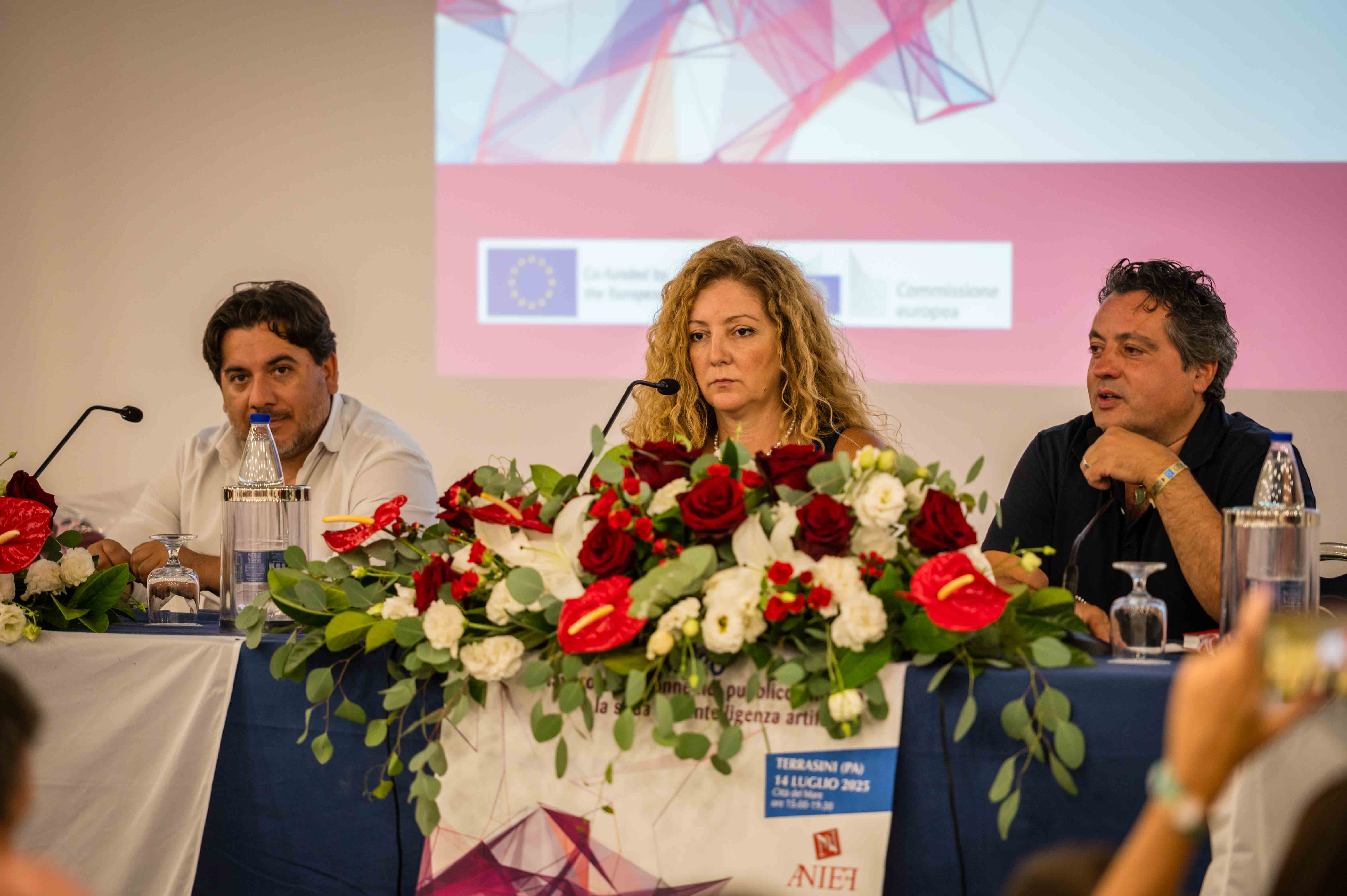
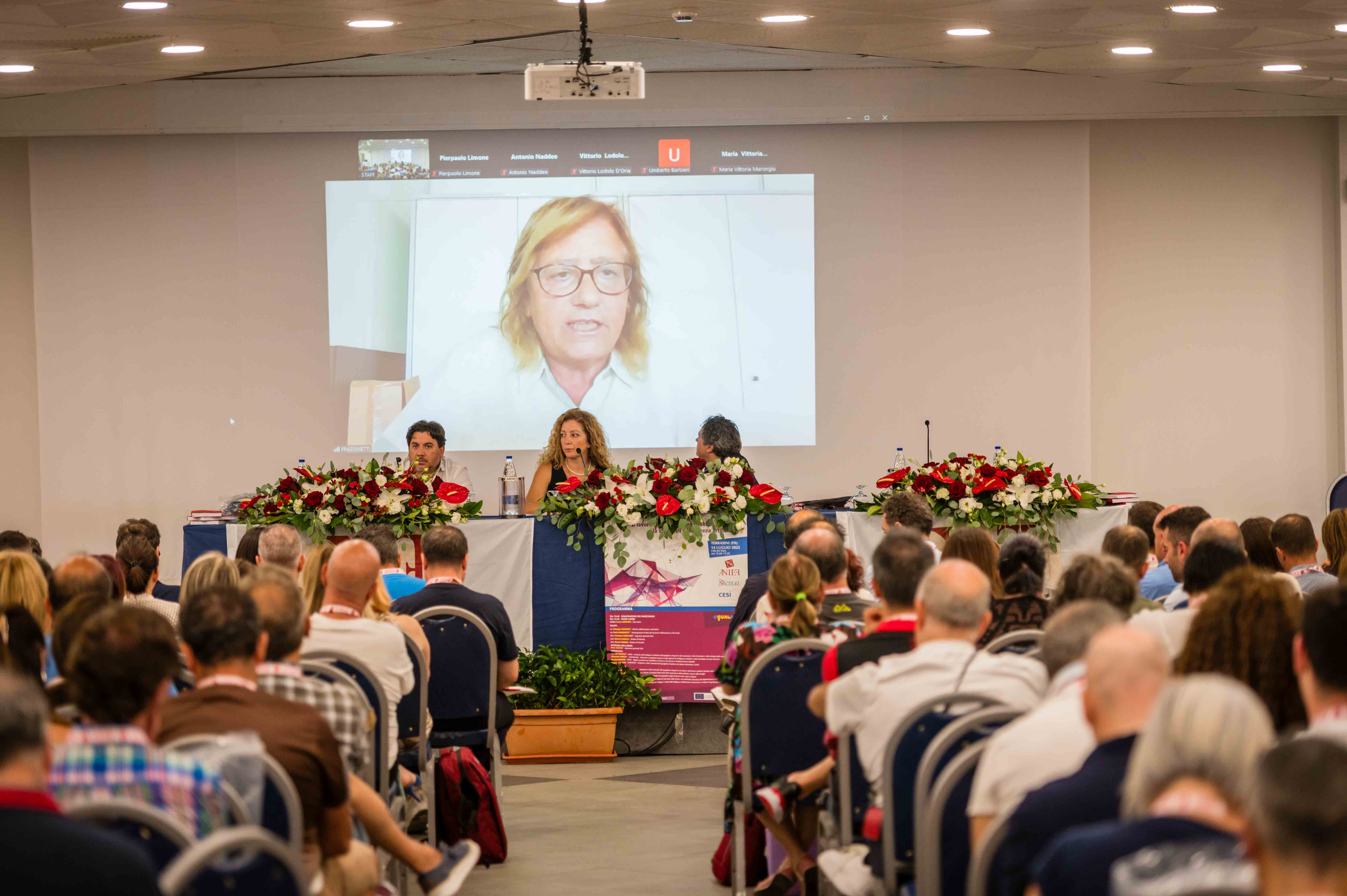



On 14 July 2025, CESI organised a conference in Terrasini (Palermo) to discuss the impact of artificial intelligence and digitalisation on gender equality in the public sector, highlighting challenges, best practices and the key role of social partners in promoting fair and inclusive workplaces.
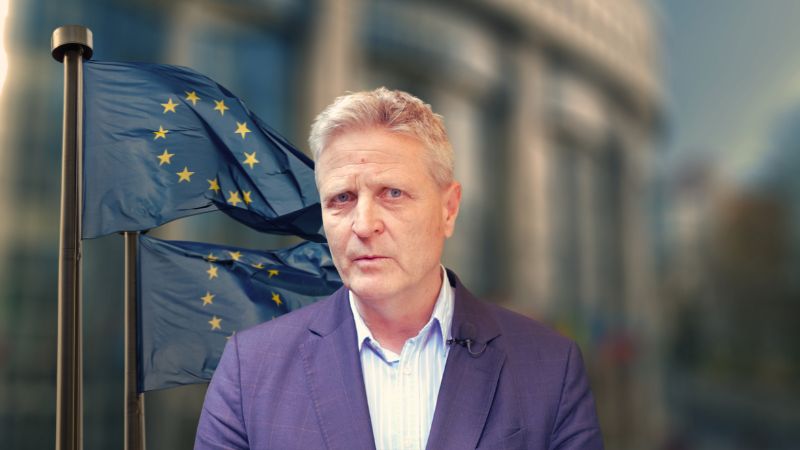

MFF 2028-2034: The EU needs the means to deliver
CESI Secretary General Klaus Heeger generally welcomes the European Commission’s publication of its proposal for the next Multiannual Financial Framework (MFF) 2028-2034 yesterday.
Klaus Heeger said: "The EU’s long-term budget must match the level of ambition that today’s cross-border challenges require and continue deliver tangible benefits to citizens, workers, and public services alike.
Over the past years, the EU has proven indispensable in responding to challenges that no single Member State can manage alone: the Covid-19 pandemic, continued in-migration, climate change mitigation, the twin green and digital industrial transitions, and Russia’s ongoing war of aggression against Ukraine that requires sustained further support. The EU is also widely expected to take on an effective role in safeguarding democratic values and the rule of law internally.
As such, the EU must be equipped with the resources it needs to respond to these challenges. If we expect the Union to act swiftly and effectively in times of crisis, then we must ensure its budget is sufficient in quantitative terms.
Further, the next MFF must function not only as an economic investment tool but also as a social compact. While Europe’s competitiveness and innovation capacity, needs to be strengthend, this must go hand in hand with efforts to reduce inequality, support workers and families, and uphold social cohesion. Europe’s Single Market must also be a social market. This means protecting jobs and working conditions, promoting strong public services, and investing in people – especially through issue-specific, dedicated structural and cohesion funds like ESF+, Erasmus+ and the Just Transition Fund.
Tying EU funds on the achievement of objectives in employment, social policy and democratic governance is vitel. Conditioning EU funding in the Member States to the implementation of the European Pillar of Social Rights and adherence to rule-of-law principles would help ensure the EU’s money fosters both prosperity and fairness.
In sum, the next MFF must also expand the EU’s commitment to resilient and crisis-proof public services, socially just transitions that ensure no worker or region is left behind, and active social dialogue, including the involvement of independent trade unions in the design, monitoring, and evaluation of EU funding programmes. As CESI, we have stressed in a previous consultation response to the European Commissio that inclusive stakeholder engagement is key to delivering an MFF that not only addresses Europe’s current and future challenges, but also builds a Union that delivers for all."
CESI Secretary General Klaus Heeger generally welcomes the European Commission’s publication of its proposal for the next Multiannual Financial Framework (MFF) 2028-2034 yesterday.
.jpeg)

CESI Youth Congress in Vilnius elected its new leadership!
Congratulations to CESI’s newly elected Board: Youth inclusion in action begins now!
We extend our heartfelt congratulations to the newly elected CESI Board on the beginning of their 5-year mandate!
Antonello Pietrangeli, representing ANIEF trade union of teachers in Italy, is the new elected CESI Youth Representative, with CESI Youth Vice-Representative Isabel Garcia, from the ANPE trade union of teachers in Spain, at his side.
The CESI Youth Congress also elected the 7 members of the Board:
- Ester Amores Lizcano, SATSE, Spain (ES)
- Alessandro Albergoni, ANIEF, Italy (IT)
- Tania Basso, Confsal FISMIC (IT)
- Stevie Kosch, CGFP, Luxembourg (LU)
- Sandra Paartalu, CGB, Germany (DE)
- Mantas Stanzys, TIKRA, Lithuania (LT)
- Moesha Naomi Van der Smissen, NCF, Netherlands (NL)
Their leadership comes at a crucial time marked by major megatrends — from technological advancements and environmental shifts to geopolitical developments and demographic transformations — fundamentally reshaping labour markets and challenging the social inclusion of young people in Europe.
The main challenges which will have to be addressed by the new leadership are:
- Fair and quality transitions from education to work for youth inclusion
- Mental health at work for young people
- Youth and digitalisation, including the right to disconnect
- Democracy and rule of law
- Access to affordable and secure housing
As the CESI Youth Board members embark on their new journey, their mandate carries the weight and promise of our shared motto: “Youth Inclusion in Action: Shaping Today’s Working Conditions for Tomorrow!” — a call to empower young workers, rethink employment models, and ensure that tomorrow’s workforce inherits not only opportunity but dignity and fairness.
The next five years will be pivotal in shaping inclusive, resilient labour policies that respond to the realities young people face today. Matthäus Fandrejewski (dbb Jugend, Germany), who has been successfully steering CESI Youth for impressive 12 years, and whose mandate will come to terms at the end of 2025, will guide and assist the new leadership the interim phase. “Young people are the leaders of today and tomorrow’s work places. Trade unions are well-placed to bridge the gap between education/training systems and labour market demands. We should ensure that as young people we shape policy initiatives by sitting at the table with public authorities and employers. Youth voices are essential to ensure that these policies reflect our real aspirations and future-oriented skills. It was a privilege to serve CESI Youth in this mission and I am sure the next generations of young trade unionists will continue to serve it with energy, inspiration and dignity!” Matthäus concluded in his closing remarks to the Congress.
Congratulations to CESI’s newly elected Board: Youth inclusion in action begins now!
.jpeg)

ACTIVER conference in Vilnius on youth employment
On July 11, CESI held a successful ACTIVER project conference on youth unemployment and active labour market policies in Vilnius.
The event marked the close of CESI's two-year and EU co-funded ACTIVER project on strengthened roles of trade unions and social partners in the shaping of active labour market policies (ALMPs) in Europe.
Hosted in Vilnius, the event brought together policymakers, researchers, youth representatives and leaders from CESI's member organization network to address one of Europe’s most urgent and enduring challenges: youth unemployment amid an ongoing permacrisis.
A central focus was on the potential of ALMPs to provide structures and solutions, in all sectors including in particular metalworking, which employs over 11 million workers in Europe. The discussions reflected a shared sense of urgency: Without targeted interventions, Europe’s youth risks becoming a 'lost generation' amidst megatrends like demographic shifts and the green and digital transitions —outpacing current education and labour policies.
Key speakers included representatives from Eurofound, the International Labour Organisation (ILO), national public employment services (PES) and the European Youth Forum. Speakers highlighted that youth unemployment in the EU remains high at 14.5%, according to Eurostat, with the situation especially dire in industrial regions. Barriers such as limited access to quality apprenticeships and services in transport, housing, childcare, healthcare, in addition to precarious employment and exclusions from reskilling initiatives were identified as critical challenges.
While artificial intelligence (AI) and automation was noted to spark fears of job displacement, speakers also presented opportunities for safer and more meaningful transitions from school to work. EU tools like the Youth Guarantee, the Union of Skills and the Pact for Skills were cited as key levers to help that the green and digital transitions are fair, inclusive and future-ready.
Participants and national authorities showcased successful practices in supporting youth transitions — such as expanding access to paid internships, vocational education and training (VET) schemes, and social protection for young workers. As Cláudia Pinto from the European Youth Forum noted, "a dignified job is the foundation of participation in society.”
Present members of the Board of CESI Youth echoed this message, calling on trade unions to ensure that young persons are not left behind.
Sara Rinaudo, CESI Youth Board member and Chair of CESI's Working Group on the Future of Work, closed the event with a powerful statement:
“Trade unions are not obstacles to progress. They are its social engines, drivers of social progress, capable of transforming transitions into opportunities for inclusion, empowerment, and fairness. Let us do our part in ensuring that!”
On July 11, CESI held a successful ACTIVER project conference on youth unemployment and active labour market policies in Vilnius.
.jpeg)

New CESI Europe Academy Board
On June 26 CESI's Europe Academy General Assembly elected a new Europe Academcy leadership.
By unanimous agreement, Marcello Pacifico from CESI's Italian member union CISAL was re-elected President for another term, which runs until after CESI's next Congress, foreseen in 2029.
Equally by unanimous votes, the following Vice-Presidents were elected to complete the Board of the Europe Academy:
- Pepa Alvarez Rello, CSIF
- Sonia García Gómez, ANPE
- Claude Heiser, CGFP
- Dietmar Knecht, dbb
- Alain Larrata, Avenir Secours
- Miguel Venegas Carrasco, Valorian
- Laura África Villaseñor Roa, SATSE
CESI Secretary General Klaus Heeger said: "I warmly congratulate Marcello Pacifico on his re-election and welcome the newly elected Vice-Presidents to the Europe Academy Board. Their collective expertise and commitment will be key to further strengthening the Academy’s mission of promoting trade union capacity building for members and affiliates of CESI across Europe. I look forward to working closely with the new Board as we continue to empower workers through knowledge and skills development."
Further information about the Europe Academy, including its new Board and project activities, is available in the dedicated Academy section of the website.
On June 26 CESI's Europe Academy General Assembly elected a new Europe Academcy leadership.
.jpeg)

ACTIVER conference: 'Youth unemployment and active labour market policies'
As part of the EU co-funded ACTIVER project, CESI aims to strengthen capacity and raise awareness of the vital role that workers, trade unions, and social partners play in shaping and implementing effective active labour market policies in today’s era of permacrisis.
ACTIVER conference: 'Youth unemployment and active labour market policies - trade union responses'
Friday, 11th of July 2025 (full day, hybrid over Zoom & in Vilnius, Lithuania)
in English and Lithuanian language
Registration here
As part of the EU co-funded ACTIVER project, CESI aims to strengthen capacity and raise awareness of the vital role that workers, trade unions, and social partners play in shaping and implementing effective active labour market policies in today’s era of permacrisis.
The European Commission’s latest initiative, the Union of Skills, highlights education and lifelong learning as essential to reinforcing Europe’s workforce. Key measures such as the Basic Skills Action Plan, the European Strategy for Vocational Education and Training (VET), and the STEM Education Strategic Plan are crucial in addressing skills gaps and tackling concerning trends like illiteracy, underinvestment, and gender disparities. Trade unions play a dual role—facilitating smoother school-to-work transitions while also supporting career progression through reskilling and upskilling, particularly in response to the EU Green Deal and digital transformation. The rapid evolution of digital technologies and AI is reshaping the job market, posing risks of job displacement while also creating new opportunities.
Against the backdrop of geopolitical and economic challenges, CESI Youth invites experts, trade unionists, and policymakers to engage in a dynamic discussion on the complex educational and labour market challenges young people face today.
The proposed event aims to find answers to the following questions:
1. What are the latest data, EU policy and legislative initiatives influencing the labour market, and how can young people contribute to creating a fairer and more balanced employment landscape?
2. What role should trade unions play in supporting, addressing, and shaping active labour market policies to ensure fair, inclusive, high-quality, and personally enriching employment conditions?
Provisional agenda:
13:00 Welcome and Keynote addresses
Roxana Mînzatu, Execute Vice-President and European Commissioner for Social Rights and Skills, Quality Jobs and Preparedness (tbc)
13:30 Setting the framework: EU & International Labour Organisation (ILO) strategies for skills for the future
Carlos Vacas, Research Officer in the Employment Unit of Eurofound
Steven Tobin, International Labour Organisation (ILO)
14:10 Jobs and skills in the EU: where to?
Inga Inga Nomeikienė, Lithuanian Public Employment Service Advisor
Sonja van Lieshout, Randstad (tbc)
14:40 A youth perspective to skills shortages, mismatches and labour market opportunities
Matthäus Fandrejewski, CESI Youth Representative and President of the youth section of the German civil service federation ‘dbb Jugend’
Sara Rinaldo, CESI Youth Board 2021-2025 and CESI and leader of the CESI Working Group on the Future of Work
Claudia Pinto, European Youth Forum
15:10 A political approach to youth employment, skills and labour markets
Hristo Petrov, Member of the European Parliament
15:20 Open discussion with the audience - approaches and initiatives for the future
15:50 Closing remarks
As part of the EU co-funded ACTIVER project, CESI aims to strengthen capacity and raise awareness of the vital role that workers, trade unions, and social partners play in shaping and implementing effective active labour market policies in today’s era of permacrisis.
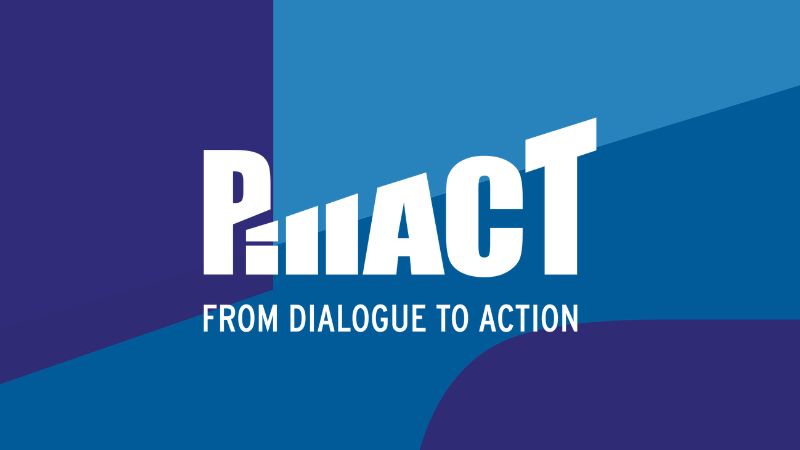

PillAct: From Dialogue to Action
PillAct reflects a clear European commitment to securing a fairer future for all.
CESI is proud to implement PillAct, a new initiative co-funded by the European Union. Building on CESI’s longstanding commitment to supporting workers’ organisations, this project aims to strengthen their role in shaping fair, resilient and future-ready labour markets.
Across Europe, the world of work is changing rapidly. The twin transitions of digitalisation and decarbonisation, coupled with shifting economic structures, create both opportunities and vulnerabilities for workers. PillAct responds to these challenges by empowering workers’ representatives to participate actively in European and national policy debates, ensuring that workers’ voices are heard and valued.
The project pursues three main objectives. First, it seeks to build capacity, providing workers’ organisations with the skills, knowledge and tools they need to navigate transitions in the labour market. Second, it promotes exchange and research, encouraging comparative analysis and the sharing of good practices on social rights, workplace democracy and collective bargaining. Finally, PillAct works to influence policy, developing concrete recommendations to reinforce the implementation of the European Pillar of Social Rights at both EU and national levels.
To achieve these aims, PillAct will deliver a programme of conferences, workshops and training sessions across Member States, supported by transnational exchanges and digital resources. These activities will strengthen knowledge of EU employment and social policy, create opportunities for dialogue between trade unions, social partners and policymakers, and support organisations in addressing urgent challenges such as fair working conditions, skills development and workplace equality.
In the long term, PillAct will enhance the capacity of unions and social partners to represent workers effectively, while contributing to a stronger and more inclusive European social dialogue. By fostering durable structures for dialogue and knowledge-sharing, the project ensures that no worker is left behind in times of change.
Implemented by CESI, PillAct reflects a clear European commitment to securing a fairer future for all.
PillAct reflects a clear European commitment to securing a fairer future for all.
.jpeg)

#ActiverCampaign: Trade Unions in Action
The campaign is part of CESI’s EU-funded Activer project, aiming to strengthen Active Labour Market Policies across Europe by highlighting the crucial role of trade unions and social partners in building fair and resilient employment systems.
The #ActiverCampaign is a dynamic initiative under the European Confederation of Independent Trade Unions (CESI)’s EU-funded Activer project. It aims to enhance the design and implementation of Active Labour Market Policies (ALMPs) across Europe by emphasising the pivotal role of trade unions and social partners in shaping inclusive and resilient employment strategies.
Empowering unions in labour market reforms
The Activer project responds to the multifaceted challenges confronting European labour markets, including demographic shifts, digital and green transitions, and the socio-economic impacts of the COVID-19 pandemic and geopolitical tensions. By focusing on capacity building and awareness-raising, the project underscores the necessity of involving workers, unions, and social partners in crafting effective ALMPs.
Key activities of the project include:
- National seminars: Six hybrid seminars hosted by CESI members across EU countries to discuss national needs and roles in ALMPs.
- European sonference: A comparative conference to explore the role of workers and social partners in delivering effective ALMPs and the support provided by the EU.
- Training seminars: Four hybrid European seminars aimed at equipping CESI members with the tools to contribute effectively to ALMPs, leveraging EU support and shared experiences.
From reception to reconstruction: Integrating displaced Ukrainians
A significant component of the #ActiverCampaign is the study From Reception to Reconstruction, conducted in collaboration with the European Policy Centre. This research delves into the labour market inclusion of over four million displaced Ukrainians residing in the EU under temporary protection. It highlights the importance of “dual intent” strategies that support both the integration of Ukrainians into EU labour markets and their potential future contribution to Ukraine’s reconstruction.
The study emphasises the role of multi-stakeholder networks, including trade unions, in facilitating skills development, training agreements, and job integration, particularly in countries like Germany, Italy, and Poland. It also calls for sustained EU funding and recognition of trade unions as essential actors in labour market access and reconstruction planning.
Visual campaigns: Engaging through multimedia
To disseminate its message effectively, the #ActiverCampaign employs a range of multimedia tools, including campaign videos and infographics. These visual materials are designed to communicate complex information in an accessible manner, highlighting the significance of ALMPs and the active participation of unions in labour market reforms.
Looking ahead: Building resilient labour markets
The #ActiverCampaign represents a concerted effort to ensure that labour market policies across Europe are inclusive, forward-looking, and resilient. By fostering collaboration among trade unions, policymakers, and social partners, the campaign aims to create employment strategies that not only address current challenges but also anticipate future labour market needs.
For more information on the Activer project and its initiatives, visit CESI’s website.
The campaign is part of CESI’s EU-funded Activer project, aiming to strengthen Active Labour Market Policies across Europe by highlighting the crucial role of trade unions and social partners in building fair and resilient employment systems.
.jpeg)

French CFE CGC Public Service Federation becomes a member of CESI
At its statutory meeting on June 26, the Board of CESI endorsed the membership application of the French CFE CGC Public Service Federation to join CESI.
The French CFE CGC Public Service Federation (Fédération des Services Publics CFE CGC) represents public sector personnel in higher and managerial positions, including in the areas of the national civil service (fonction publique d’État), local and regional administrations (fonction publique territoriale) and health care services (fonction publique hospitalière). As such, the federation also represents workers in telecoms and postal services, police forces and fire brigades.
CESI Secretary General Klaus Heeger said: "We welcome the French CFE CGC Public Service Federation wholeheartedly as a further engaged member in the CESI trade union family - committed to strong and developing EU, based on a Single Market with clear social and worker rights as a cornerstone. The CFE CGC Public Service Federation strengthens CESI representativeness in the public services in Europe and adds substantially to CESI's presence in the French trade union landscape. We look forward to successful and continued cooperation and collaboration, for mutual benefits and common strength."
At its statutory meeting on June 26, the Board of CESI endorsed the membership application of the French CFE CGC Public Service Federation to join CESI.


CESI Summer Days 2025: Active labour market policies for new EU Quality Jobs Roadmap
In the face of rapid labour market transformations, CESI held its fifth Summer Days on June 26-27 in Brussels, on active labour market policies in Europe.
As in previous editions during the last years, the Summer Days brought together trade unionists, policymakers, researchers and civil society representatives, this year to discuss on the pivotal role of active labour market policies (ALMPs) in fostering inclusive, resilient, and sustainable employment across Europe – in times of demographic shifts, the digital and green transitions, post-pandemic recovery, and geopolitical uncertainties. As a part of CESI EU co-funded capacity building project ‘Activer’, the Summer Days took place against the background of the new EU Quality Jobs Roadmap that has been announced for later this year by the European Commission.
Day one: Setting the frame for action
The conference opened with a keynote by CESI Secretary General Klaus Heeger, who underscored the urgency of aligning employment policies with both current challenges and long-term structural shifts. “We must ensure that active labour market measures are not only reactive but forward-looking,” Heeger noted. “Workers and their representatives must be at the table when policies are designed and implemented.”
Tadas Leončikas (Eurofound) and Janice Schmidt-Altmeyer (German Federal Employment Agency) unpacked recent trends from Eurofound’s European Jobs Monitor and examined the operational capacities of national employment services. Both stressed the need for coherent strategies to address the shrinking working-age population, the rise of services, the digital and green transitions, and persistent gender and regional employment gaps.
Participants then split into three thematic workshops addressing the governance of ALMPs, national good practices, and the role of social dialogue in ensuring fair employment – highlighting that no single actor can deliver ALMPs alone. Reports from workshop facilitators reinforced the necessity of collaboration between EU institutions, national authorities, public employment services, employers, and trade unions.
An institutional panel featuring representatives from the European Commission, the ILO and CESI explored political pathways for advancing ALMPs.
Day two: From policy to practice
The second day zoomed in on how to deliver inclusive ALMPs on the ground. Through keynote addresses and video messages from Oliver Röpke (EESC), and MEPs Li Andersson, Dennis Radtke and Jana Toom, the discussions emphasised ALMPs’ potential to promote sustainable employment and competitiveness, if rooted in social rights and dialogue.
A dedicated panel showcased the perspectives of trade unions and civil society on inclusive activation measures for women, youth, and persons with disabilities.
Workshops later in the day highlighted concrete case studies: vocational education as a motor for employment, ALMPs in the automotive industry’s green transformation, and the labour market integration of Ukrainian refugees — demonstrating the adaptability and sector-specific nature of well-designed policies.
Looking ahead
As Europe prepares for the forthcoming EU Quality Jobs Roadmap, CESI’s Summer Days made clear: ALMPs are not just bureaucratic tools – they are levers of social justice, instruments for decent work, and essential to safeguarding Europe’s social model.
CESI President Romain Wolff closed the event with a reminder: “If we want policies that truly serve workers, then workers must be central to those policies. This is what CESI – and the Activer project – are all about.”
For more on CESI’s Activer project visit CESI's website.
In the face of rapid labour market transformations, CESI held its fifth Summer Days on June 26-27 in Brussels, on active labour market policies in Europe.
.jpeg)

In memory of Ulrich Silberbach- A tireless advocate for public services and social justice
It is with deep sorrow that we share the news of the passing of Ulrich (Uli) Silberbach who died on June 25, 2025, at the age of 63.
It is with deep sorrow that we share the news of the passing of Ulrich (Uli) Silberbach, former Federal Chairman of the dbb Beamtenbund und Tarifunion and Vice-President of CESI, who died on June 25, 2025, at the age of 63.
Uli Silberbach was a committed trade union leader and a passionate advocate for public employees. Known for his approachable nature and strong convictions, he earned the respect and trust of colleagues and partners alike throughout his many years of service.
Born in Cologne on August 27, 1961, he began his professional life in local administration before turning fully to union work. His path led him from leadership roles in komba nrw to key positions in the dbb, where he served as Federal Chairman from 2017. He led with clarity, purpose, and a deep sense of responsibility until the final months of his life.
Uli stood firmly for a well-functioning public sector and for the values of democracy and social balance. His work was driven by a belief in fairness and cooperation—principles he embodied throughout his career.
He leaves behind a legacy of dedication, courage, and service that will not be forgotten.
It is with deep sorrow that we share the news of the passing of Ulrich (Uli) Silberbach who died on June 25, 2025, at the age of 63.
.jpeg)

CESI and WZZ host seminar on active labour market policies
CESI and WZZ ‘Forum – Oświata’ held a timely seminar in Poland on 13 June 2025, discussing active labour market policies and the key role of unions in building sustainable employment.
On 13 June 2025, CESI, in collaboration with its Polish member union WZZ “Forum – Oświata,” held a national seminar entitled Active Labour Market Policies for Sustainable Labour Markets in Poland in Kazimierz Dolny. The event formed part of the EU-funded ACTIVER project, which aims to promote effective active labour market policies (ALMPs) across Europe and to underline the vital role of trade unions in their design and implementation.
The seminar gathered representatives from trade unions, public authorities, and academia to discuss how ALMPs can be shaped to respond to ongoing challenges such as the COVID-19 pandemic, inflation, climate change, the influx of refugees, and broader economic transitions. Participants explored both regional and national perspectives, sharing experiences and identifying the most pressing needs for sustainable labour markets.
Panel discussions focused on practical solutions for supporting employment, fostering skills development, and ensuring social inclusion, with particular emphasis on the role of education-sector unions. Speakers addressed the importance of social dialogue in times of crisis and exchanged examples of successful practices in responding to labour market disruptions.
CESI’s Vice-President Dagmara Iwanicw, together with numerous experts and trade union leaders, contributed insights into how unions can actively engage in shaping policies that protect workers while supporting economic resilience.
Through initiatives like ACTIVER, CESI continues its commitment to promoting strong social partnerships and ensuring that workers’ voices are heard in the development of policies that secure fair and sustainable labour markets across Europe.
CESI and WZZ ‘Forum – Oświata’ held a timely seminar in Poland on 13 June 2025, discussing active labour market policies and the key role of unions in building sustainable employment.
.jpeg)

Celebrating World Public Service Day 2025
Public sector investment and social partnerships as pillars of resilient and competitive societies
On June 23rd, we join the world in marking United Nations Public Service Day, a vital opportunity to honour the dedication of public sector employees. These professionals are the backbone of resilient societies, ensuring fair, timely, and high-quality access to essential services for all citizens.
Yet, their life-saving and transformative work often goes unrecognized, underfunded, and undervalued. This day reminds us that the strength of our communities—and indeed of Europe’s competitiveness—depends on sustained investment in public services and the people who deliver them.
Investing in People: The Foundation of Sustainable Growth
In today’s rapidly shifting global economic landscape, with rising living costs, growing socio-economic inequalities, digital divides, and heightened geopolitical tensions, robust public services are more essential than ever. The European Confederation of Independent Trade Unions (CESI) stresses that competitiveness must be built on human capital and resilient social infrastructure—not at the expense of fair wages or labour protections.
CESI calls for:
- Progressive taxation and closure of tax loopholes to fairly finance essential public services;
- Increased public investment in both infrastructure and human resources—particularly in education, vocational training, preventive healthcare, and public employment services;
- Improved working conditions and fair remuneration for public sector employees;
- Modernisation of public administrations, embracing AI and digitalisation to enhance efficiency, while safeguarding personalised, accessible services and ensuring technology serves as a tool for inclusion, not exclusion.
Social Dialogue: A Cornerstone of Competitiveness
Strong social partnerships are not a cost, but an economic asset. Countries with robust social dialogue recover faster from crises, achieve more sustainable growth, and ensure fairer transitions in times of change. CESI advocates for the full integration of trade unions and social partners into EU economic governance and decision-making, so that workforce voices help shape competitiveness and social policies alike.
CESI also supports reforms to public procurement rules that prioritise EU-made goods and services, encourage fair work through binding social criteria, and simplify procedures for public administrations.
A Call to Action
“Real investment in public sector employees is crucial to ensuring the sustainability and resilience of our societies,” said Klaus Heeger, CESI Secretary-General. “The EU must not wait for another crisis to realise that public services are the backbone of our communities. Public services, combined with strong social dialogue, are indispensable to achieving Europe’s economic and social ambitions.”
On this Public Service Day, CESI urges policymakers to embrace public services not as a burden, but as indispensable infrastructure—central to the EU’s competitiveness, economic security, and the well-being of its citizens.
Public sector investment and social partnerships as pillars of resilient and competitive societies


This week: CESI Summer Days 2025 on active labour market policies
Register now for CESI's 5th annual Summer Days on June 26/27 in Brussels.
CESI Summer Days 2025
A new Quality Jobs Roadmap: The Role of Active Labour Market Policies
An event by the European Confederation of Independent Trade Unions (CESI)
Thursday, June 26 2025, 14.00-18.30 (followed by BBQ & live music)
Friday, June 27 2025, 9.00-13.30 (followed by lunch)
Venue: Le Bouche à Oreille, Rue Félix Hap 11, 1040 Brussels
Moderated by Elizabeth Kuiper, European Policy Centre (EPC)
REGISTER
Full programme
In a rapidly changing world of work, ensuring access to quality employment remains a key challenge for policymakers, employment services, businesses, social partners, trade unions and civil society.
As labour markets are challenged by industrial transformations, digitalisation and robotisation, green transitions, demographic shifts, and new forms of work, active labour market policies (ALMPs) have become critical tools for fostering inclusion, resilience, and sustainable growth.
As part of CESI’s EU co-funded ‘Activer’ project, this year’s fifth edition of CESI’s Summer Days will explore the evolving role of ALMPs in shaping a new EU Quality Jobs Roadmap as announced by the European Commission.
The event will bring together policymakers, employment agencies, social partners, civil society actors and researchers to discuss emerging labour market trends, best practices in ALMP implementation, and the role of dialogue in driving change.
· How can ALMPs be leveraged to create sustainable and inclusive employment?
· What is the role of public and private actors in delivering effective ALMPs?
· How can trade unions and civil society contribute to shaping active labour market frameworks that leave no one behind?
· What sector-specific strategies are needed to respond to disruptions such as industrial transformation or refugee integration?
With the participation of:
· Mario Nava, Director General for Employment, Social Affairs and Inclusion at the European Commission
· Oliver Röpke, President of the European Economic and Social Committee (EESC)
· MEP Estelle Ceulemans (S&D), Member of the European Parliament Committee on Employment and Social Affairs
· MEP Jana Toom (Renew), Member of the European Parliament Committee on Employment and Social Affairs
· Janice Schmidt-Altmeyer, Head of European Representation Office of the German Federal Employment Agency (Bundesagentur für Arbeit)
· Carlien van Empel, Director of the ILO Office for the European Union
· Romain Wolff, President of CESI
… and many others
With experts and workshop partners from:
· Eurofound
· Organisation for Economic Co-operation and Development (OECD)
· German Federal Employment Agency (BA)
· European Policy Centre (EPC)
· UNI Europa
· World Employment Confederation (WEC)
· European Women’s Lobby (EWL)
· European Disability Forum (EDF)
… and many others
Register now for CESI's 5th annual Summer Days on June 26/27 in Brussels.
.jpeg)

Resolution now available on reconciling defence spending and investments in people
At its meeting on June 18, the Presidium of CESI adopted a resolution on a reconciliation of necessary defence spending and much-needed investments in people.
The position:
1. Encourages a further deepening of partnerships with strategic allies, including NATO, the UN, OSCE, Canada, and with European countries like the UK and Norway.
2. Calls upon the EU and its Member States to ensure the necessary defence investments to ensure Europe’s capacity to defend its territory and citizens, while maintaining cooperation with NATO and further partners and reinforcing the European Defence Union (EDU) as a complementary pillar of regional security.
3. Emphasises that staffing shortages in the armed forces and civilian defence sectors must be urgently addressed, with investments in personnel recruitment, retention, training and professional development, ensuring fair working conditions for all military and civilian staff involved in defence efforts.
4. Stresses that security and defence extend beyond the armed forces to societal resilience; in line with the recent Niinistö report ‘Safer Together’, it must span to civil defence to include the protection of critical infrastructure, emergency preparedness, and coordinated responses to hybrid threats across the EU – requiring additional public investments to build these capacities.
5. Insists that defence spending increases must not come at the expense of cuts to public services, social security systems, education, healthcare, pensions or employment programmes, which remain indispensable to Europe’s socioeconomic fabric.
6. Recalls that deficits to no more than 3% of the national GDP and public debt levels to below 60% of national GDP should remain the target for all Member States in the European economic governance. Sustainable public debt targets over time must remain at the core of the EU’s economic governance framework as restricting budgetary debts to manageable levels is the basis for fiscal prosperity.
7. Stresses therefore that the EU and its Member States should take further joint measures to combat unethical tax avoidance and illicit tax fraud, by means of both regulatory adjustments and increased capacities for national tax administrations through a recruitment of more staff, in order to help finance additional defence spending needs.
8. Supports, in addition, reforms in EU taxation frameworks to ensure that excessive windfall profits of large multinational enterprises contribute adequately to national and EU budgets to raise public revenues to finance necessary public investments including in the area of defence.
9. Advocates, beyond, for reinforced cooperation among EU Member States in joint defence procurement, research, innovation, and industrial capacity-building to create economies of scale, avoid duplications, and maximise the efficiency of increased defence budgets.
CESI Secretary General Klaus Heeger said: "Europe seemingly faces a dilemma: We need to invest in defence to ensure our mere security against Russia, and we need to carry out major investments in workers, families and citizens at the same time - while public budgets are drained and ever increasing debts are a no-go. As CESI, we propose to use fair taxation instruments to help fund both."
The full resolution is available here.
At its meeting on June 18, the Presidium of CESI adopted a resolution on a reconciliation of necessary defence spending and much-needed investments in people.


New position on public procurement rules in the EU
On June 19, the Presidium of CESI adopted a new position on a foreseen revision of EU public procurement rules.
The position sketches CESI's priorities in view of a revision of EU public procurement rules, which is foreseen to be pursued in 2026. It focuses on:
1. Incorporation of mandatory social criteria: Revised directives must require the inclusion of mandatory social criteria in procurement tender procedures. Bidders should be required to be assessed not only on price and technical capacity but also on compliance with EU, national and sectoral labour laws, the observance of collective bargaining agreements, and adherence to minimum wages and safe and healthy working conditions. This approach would effectively counter a race to the bottom of social and labour standards through public procurement.
2. Legal clarity for social criteria: The current EU public procurement rules provide uncertainty and ambiguity about the incorporation of social conditionalities in public tender procedures. Despite a plethora of guidance material from the side of the European Commission, many authorities in charge of issuing call for tenders are unsure on how to create legally soundproof tender documents with social conditionalities. In the end, many refrain from it and just play safe by opting for tender procedures on the basis of lowest bidders. With clear and simple rules on social conditionalities to be included in tenders (notably, a respect for a collective agreements), significant levels bureaucracy and red tape could be cut, while at the same time numerous workers across Europe currently abused would benefit from better employment and working conditions. A revision of the public procurement directives could be a landmark example on how to reconcile cutting red tape with improved social justice.
3. Early and systematic involvement of trade unions and worker representatives: Revised public procurement directives should make clear that trade unions and worker representatives in public authorities must be integrated in procurement processes at an early stage. They should have a monitoring role in the awarding process to ensure that labour standards are upheld from the outset. Tender documents should be subject to approval by representative employee participation bodies. This would safeguard against adverse impacts on workers and strengthen accountability, too.
4. Protection of job security and transition provisions: Revised public procurement directives should encourage protect workers in the event of a transfer between service providers during the execution of services under a publicly awarded contract. Such protection relates most notably to the preservation of existing terms and conditions, the recognition of service length, and consultation practices with trade unions. This would enhance job security and predictability for affected workers. It would counter the instability which often associated with frequent re-tendering.
CESI Secretary General Klaus Heeger said: "Currently, EU rules allow for public tendering based merely on the lowest price, which puts businesses that apply collective agreements a ta competitive disadvantage – and thus even incentivises them to abolish respect for collective agreement in order to stand a chance in public tendering vis-à-vis companies that engage in social dumping. It therefore remains essential that public procurement is a lever for social and labour rights of workers and not an enabler for a race to the bottom of social dumping – to ensure that increased competitiveness is not achieved through slashed wages andsocial and labour rights. CESI supports a revision of the EU public procurement rules, provided it does not inadvertently undermine workers’ rights or lead to a further race to the bottom in labour standards."
The full position is available here.
On June 19, the Presidium of CESI adopted a new position on a foreseen revision of EU public procurement rules.
.jpeg)

New consultation contribution on the forthcoming EU Quality Jobs Roadmap
On June 18 the Preidium of CESI adopted policy priorities for a new EU Quality Jobs Roadmap.
The priorities, which were put together as a contribution to a social partner consultation of the European Commission, enumerate CESI's policy demands for bette employment in Europe. They focus in particular on:
1. Strengthening social dialogue and trade union pluralism: A Quality Jobs Roadmap cannot be implemented without trade union pluralism and inclusive social dialogue that gives a voice to all workers. The Quality Jobs Roadmap should foster trade union pluralism and inclusive social dialogue at the national level by enforcing applicable provisions of the 2023 Council Recommendation on strengthening social dialogue in the European Union. It should also pledge proportionate funding for capacity building for all trade union organisations at the EU level and enhance effective access to social dialogue committees of all trade union organisations found representative in Eurofound representativeness studies, including through a revision of Commission Decision 98/500/EC on the establishment of European Sectoral Social Dialogue Committees.
2. Ensuring fair wages and decent working conditions: For too many workers, remuneration remains insufficient to meet their needs. The Quality Jobs Roadmap must include measures to promote collective bargaining that ensure fair remuneration and wage progression. A key element to this pertains to a full implementation and enforcement of the EU Minimum Wage Directive 2022/2041, to ensure upward convergence in minimum wages based on strong collective bargaining. It must also further strengthen the fight against wage discrimination, including gender pay gaps and precarious employment practices, including through a full implementation and enforcement of the EU Pay Transparency Directive 2023/970.
3. Tackling precarious employment and ensuring secure jobs: While new forms of employment continue emerge and evolve, so do precarious contracts that undermine workers’ security. The Quality Jobs Roadmap should pave the way for a revision of the EU directives on Fixed-Term, Part-Time, and Temporary Agency Work to eliminate discriminatory employment practices (beyond valid aspects of temporary restrictions in employment) vis-à-vis permanent employees. It should seek to also ban unpaid and exploitative traineeships, fully exploiting EU competences in this field, to ensure all traineeships enjoy effective quality standards and that at least all post-curriculum ones are remunerated at least at minimum wage level. Moreover, the Roadmap make a case to include include social clauses in public procurement and state aid, ensuring that public funds do not support companies that violate workers’ rights or do not respect minimum wages and apply collective agreements.
4. Managing the digital and green transitions responsibly: The twin transitions of digitalisation and the green economy must work for workers, not against them. The Quality Jobs Roadmap should facilitate a dedicated EU Directive on Digitalisation in the Workplace, ensuring a right to disconnect, and EU Directive on Artificial Intelligence (AI) at Work, to secure fair and transparency AI governance and data protection for workers. It sould also include just transition mechanisms that provide reskilling and upskilling opportunities, particularly for workers in sectors affected by decarbonisation policies such as in the automotive sector, as well as adequate social protection for those workers hat could/will be left behind, despite all re-training and upskilling efforts.
5. Strengthening public services and addressing labour shortages: Public services play a crucial role in guaranteeing social cohesion and competitive framework conditions for businesses environments, yet underfunding and staff shortages persist. For a Quality Jobs Roadmap should, CESI urges increased investment in wages and working conditions in public service jobs, including in the areas of public administrations and employment services, justice and security, defence, post and telecoms, and education and health care, to enhance recruitment and retention and a nigh attractiveness of public services as employers of choice. CESI also encurages steps to higher staffing levels, particularly in the critical public sector to enable public services also to perform and deliver when they face unexpected crises or challenges. In fields such as health care, patient-staff ratios could be tools to combine high levels of service delivery and decent working conditions for personnel.
6. Addressing youth employment and skills gaps of older workers: Young workers face increased labour market uncertainty, and older workers face their own challenges in job markets. CESI demands in relation to a Quality Jobs Roadmap greater investment to bring down school dropout levels and strengthen apprenticeships and vocational education and training (VET) to facilitate school-to-work transitions. CESI also demands a reinforced development of lifelong learning and further professional training frameworks that help workers adapt to evolving job markets throughout their careers, as well as further models to adapt job profiles and portfolios to the physical capacities and conditions of workers, to ensure good safety and health at work until retirement age.
7. Combating violence and discrimination at work: A workplace free from violence and discrimination is fundamental to quality jobs. Concerning a Quality Jobs Roadmap, CESI calls for a full transposition and enforcement of the new EU Directive 2024/1385 on combating violence against women, as well as a full ratification and enforcement of the Council of Europe’s Convention on Preventing and Combating Violence against Women by the EU and all its Member States. CESI also demands strengthened policies to address third-party violence, particularly in public-facing professions such as health care, education and law enforcement, and equal career opportunities for all workers, with proactive measures to tackle discrimination based on gender, ethnicity, disability, and other grounds.
CESI Secretary General Klaus Heeger said: "It is imperative that the Roadmap considers acomplete set of implementation and enforcement tools, including hard tools like legislative proposals and infringement procedures, soft policy tools such as country-specific recommendation under the European Semester, EU and national level funding to implement employment policy objectives, and further support for all trade unions and inclusive social dialogue at EU and national level."
The full position is available here.
On June 18 the Preidium of CESI adopted policy priorities for a new EU Quality Jobs Roadmap.
.jpeg)

A New Quality Jobs Roadmap for Europe
Editorial by Klaus Heeger, Secretary General of CESI
Dear members, partners, and friends,
As we approach CESI's Summer Days 2025 under the headline "A New Quality Jobs Roadmap - The Role of Active Labour Market Policies", the timing is significant: Labour markets across Europe are under extraordinary pressure.
The overlapping challenges of demographic shifts, technological disruption, the twin green and digital transitions, geopolitical instability, and the aftermath of the COVID-19 pandemic are converging in unprecedented ways.
The most recent Eurofound Yearbook 2024, published in May 2025, leaves no doubt: Europe faces not a temporary labour market imbalance, but a long-term, structural workforce crisis. Vacancy rates remain historically high in key sectors such as construction, ICT, health and care services, with SMEs especially struggling to recruit workers with the right skills.
In 2023 alone, 80% of SMEs reported difficulties finding qualified staff, directly threatening the EU's ability to meet its green and digital transition targets. In sectors central to climate action, such as heat pump installation, shortages of tens of thousands of skilled workers risk derailing critical decarbonisation objectives.
Against this complex backdrop, we believe that active labour market policies (ALMPs) are no longer an optional labour market instrument - they are the cornerstone of a socially resilient, competitive and fair Europe. But to succeed, ALMPs must adopt a two-fold mission: they must address both supply-side and demand-side shortcomings.
The Commission's latest 2024 action plan and Union of Skills initiative echo this integrated approach: empowering individuals to reskill, upskill and access decent work, while actively engaging businesses to improve job quality, invest in training, and adapt work organisation.
The Eurofound findings are clear: many of the sectors facing the most acute shortages are precisely those with some of the poorest working conditions - low wages, high physical demands, unsocial hours, precarious contracts and elevated burnout risks.
For ALMPs to deliver, we need strong investment in training, robust public employment services, and above all, genuine social dialogue at every level. Workers and their trade unions must be co-architects of these transitions. Quality employment is not just about job creation - it is about creating sustainable jobs that provide fair pay, dignity, autonomy, security, and career prospects.
Meaningful involvement of social partners is essential. Eurofound's latest research shows, while social partners are often consulted, their involvement in the concrete design and monitoring of Just Transition and ALMP measures remains insufficient in many Member States. A stronger role for trade unions, worker representation, and collective bargaining must be a non-negotiable pillar of the just initiated Quality Jobs Roadmap.
The CESI Summer Days 2025 offer a good opportunity to move from diagnosis to solution. Over two days, representatives from EU institutions, think tanks, public employment services, the ILO, the European Economic and Social Committee, civil society and not least trade unions will explore:
- How to overcome persistent labour and skills shortages through targeted, inclusive ALMPs.
- How education, VET, dual learning and reskilling systems must be strengthened to address both skills shortages and inequalities, with a focus on SMEs that often lack training capacities.
- How to tackle uneven impacts of the green and digital transitions, which risk deepening social divides if not accompanied by proactive support for vulnerable workers and regions.
- How can ALMPs be leveraged to create sustainable and inclusive employment.
- What is the role of public and private actors in delivering effective ALMPs.
- How can trade unions and civil society contribute to shaping active labour market frameworks that leave no one behind.
- What sector-specific strategies are needed to respond to disruptions such as industrial transformation or refugee integration.
Tackling these challenges will require initiatives that cut across silos and integrate employment, education, industrial, social and migration policies.
In this spirit, I look forward to welcoming all participants in Brussels.
With kindest regards,
Klaus Heeger
Editorial by Klaus Heeger, Secretary General of CESI
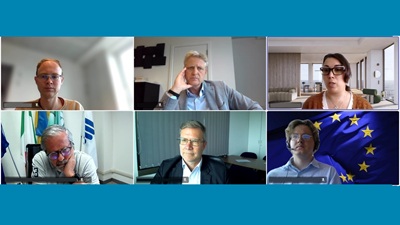

Hearing with the European Commission on the future of the automotive industry
Today CESI participated in a hearing with the European Commission on change management in the automotive industry in Europe.
The hearing, which was steered by the European Commission's Directorate-General for Internal Market, Industry, Entrepreneurship and SMEs (DG GROW), aimed to assess in particular the priorities of trade unions for a European automotive sector which is innovate and remains a hub for quality employment on the continent - despite the challenges it faces in the international context.
During the hearing, which took place as part of the European Commission's Strategic Dialogue on the Future of the European Automotive Industry, CESI was represented by Secretary General Klaus Heeger and Sara Rinaudo from the Italian Fismic-Confsal union, which represents Italian metal workers in the Italian car industry. They made clear that workers in the car industry currently need:
- Enhanced social protection: Implementation of social protection mechanisms for workers impacted by the restructuring and transition to sustainable mobility - Extension and strengthening of social safety nets to ensure adequate worker security, easing the tax burden at national level currently affecting these benefits.
- Support for the green transition: Increasing investment plans to support the automotive sector - Implementation of a realistic and gradual transition, adjusting Green Deal sanctions deadlines and adopting a tailored approach for the specific needs of the automotive sector - Recognition of alternative fuels and intermediate technologies - Promotion of technological neutrality and support the use of intermediate solutions for the industry’s sustainable evolution.
- Adequate economic support: Strengthening of European transition funds and provision of tax incentives to companies investing in green technologies - Emphasis on research and development while simplifying fund access for SMEs in the sector.
Today CESI participated in a hearing with the European Commission on change management in the automotive industry in Europe.
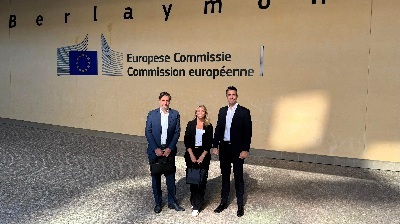

CESI hosts train driver lobby days for its member ALE
On May 20-21, CESI hosted train driver lobby days in Brussels for its member ALE, the Federation of European Train Drivers' Unions.
As in previous annual editions, this year's CESI train driver lobby days for ALE featured high level meetings with the European Commission and a series of MEPs involved in EU transportation and employment policy, including:
- MEP Jens Gieseke, EPP Group Coordinator in the European Parliament Committee on Transport and Tourism (EP TRAN) and MEP Dariusz Joński, EPP Deputy Group Coordinator,
- MEP Johan Danielsson, S&D group coordinator in EP TRAN, and
- MEPs Konstantinos Arvanitis, Rosa María Serrano Sierra, Alicia Homs Ginel and Elena Nevado del Camp
The ALE delegation was led by Alejandro Martínez Treceño, Secretary General of ALE, who presented ALE's priorities on:
- a revision of the EU Train Drivers’ Directive
- working conditions in the railway profession and challenges in the supply of labour in the sector as a result of ageing workforces
- the contribution of rail transport to climate change mitigation
- the European Commission's plans for a high-speed rail system in the EU
- the functioning of Directive 2016/797 on the Iteroperability of the Rail System in the EU
CESI Secretary General Klaus Heeger said: "Our annual train driver lobby days in Brussels in cooperation with ALE are excellent opportunities to bring expert members of ours in the rail sector together with key EU decision makers in Brussels to discuss bilaterally and directly about concrete issues and challenges for workers in the railway sector, and on ways to address them through policy making at the EU level. We are glad to see when these talks end in tangible results and deepened cooperation."
On May 20-21, CESI hosted train driver lobby days in Brussels for its member ALE, the Federation of European Train Drivers' Unions.


Open call for tender: 'The postal sector - an inclusive employer'
The European social partners for the postal sector - PostEurop, CESI and UNI Europa - are looking for a consultancy to support their EU co-funded project 'The postal sector: an inclusive employer for a more inclusive society'.
The project focuses on the topics of disability and ageing. The consultants’ role will be to support the project implementation through 2 parts:
- Part 1: Collection, analysis and share of data
- Part 2: Workshop facilitation supported by design-thinking
The proposals have to be sent to PostEurop Projects Team (Mr. Antonino Scribellito / antonino.scribellito@posteurop.org and Mr. Waqas Ahsen / europeanprojects@posteurop.org), in charge of the administrative management and coordination of this project, by 19 June 2025.
The full tender including all specifications and details is available on the website of PostEurop.
The European social partners for the postal sector - PostEurop, CESI and UNI Europa - are looking for a consultancy to support their EU co-funded project 'The postal sector: an inclusive employer for a more inclusive society'.
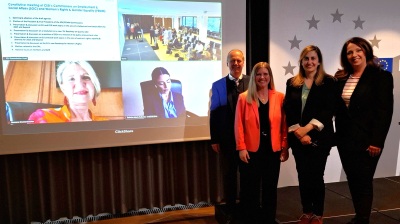

CESI Commissions on Employment and Gender Equality elect new leadership
At its constitutive meeting on May 16, following CESI's Congress in December, CESI's Commissions on Employment and Social Affairs (SOC) and Women's Rights and Gender Equality (FEMM) elected their new leadership.
In unanimous votes, the following were elected:
- Eva Fernández Urbón, Equality Policy Coordinator of the Spanish CSIF trade union, as President of the Commission on Employment and Social Affairs (SOC)
- Synnöve Nüchter, Board member of the dbb's Federal Women's Representation, as President of the Commission on Women's Rights and Gender Equality (FEMM)
- Maik Wagner, Chairman of the dbb's social security insurance union GdS, as Vice-President of the Commission on Employment and Social Affairs (SOC)
- Sabrina Pellerito, Adviser at the Italian Cisal trade union, as Vice-President of the Commission on Employment and Social Affairs (SOC)
- Romana Deckenbacher, Vice-President of CESI's affiliate Eurofedop, as Vice-President of the Commission on Women's Rights and Gender Equality (FEMM)
- Carmen Jaffke, Member of the Executive Committee of the Luxembourgish CGFP trade union, as Vice-President of the Commission on Women's Rights and Gender Equality (FEMM)
Their mandate will run until CESI's next Congress, foreseen in 2029.
CESI Secretary General Klaus Heeger said: "I am most glad that CESI's Commissions on Employment and Social Affairs and on Women's Rights and Gender Equality will both have a highly competent leadership during the next years. Eva Fernández Urbón, Maik Wagner and Sabrina Pellerito for the SOC Commission and Synnöve Nüchter, Romana Deckenbacher and Carmen Jaffke for the FEMM Commission bring together a wealth of expertise and experience in activism in employment and gender equality respectively. All have a proven track record of successful interest representation for working conditions and equal opportunities in their countries and national trade unions. At the European level, they will be a strong leadership for CESI to advocate decent employment and equal rights for our membership at large."
At its constitutive meeting on May 16, following CESI's Congress in December, CESI's Commissions on Employment and Social Affairs (SOC) and Women's Rights and Gender Equality (FEMM) elected their new leadership.


EqualPro conference in Berlin on the added value of EU gender equality policies in Germany
On May 16, CESI hosted an EqualPro project conference in collaboration with its member dbb, the German civil service federation, in Berlin.
Titled 'European equality policies made in Brussels: What added value for Germany?', the conference aimed to
- explore the results of European gender equality policy in Germany,
- assess the implementation of recent EU gender equality policies into German national law, and
- sketch subsequent gender equality policy demands to the EU.
Expert presentations on the role of major EU gender equality directives, such as the recent EU pay transparency directive, women on boards directive, gender-based violence directive, and equality bodies directives were delivered by
- Marion Böker, German consultant specialised in women's rights and long-standing Member of the Executive Board of the European Women's Lobby (EWL), and
- Katja Lenzing, Deputy Head of Unit for Gender Equality at the European Commission’s Directorate-General für Justice and Consumer Protection.
CESI policy demands were outlined by Synnöve Nüchter, designated President of CESI’s Commission on Women’s Rights and Gender Equality.
Following a debate with the participants, a concluding trade union panel with CESI members put the essence of the discussions of the conference into perspective - including from a pan-European comparative perspective, featuring
- Eva Fernández Urbón, designated President of CESI’s Commission on Employment and Social Affairs and Equality Policy Coordinator of the Spanish CSIF trade union,
- Dagmara Iwanciw ,Vice-President of CESI and Member of the Presidium of the National Board of the Polish WZZ Forum-Oświata trade union, and
- Carmen Jaffke, designated Vice President of CESI’s Commission on Women’s Rights and Gender Equality and Member of the Executive Committee of the Luxembourgish CGFP trade union.
On May 16, CESI hosted an EqualPro project conference in collaboration with its member dbb, the German civil service federation, in Berlin.
.jpeg)

CESI in Belgrade: Strengthening gender equality in Serbia and the healthcare sector
On May 8th, 2025, CESI marked a landmark moment for healthcare trade union cooperation, gender equality, and Serbia’s EU integration in Belgrade.
On May 8th, 2025, CESI, with the support of its Serbian member, the Association of Physicians and Pharmacists of Serbia (SLFS), marked a landmark moment for healthcare trade union cooperation, gender equality, and Serbia’s EU integration in Belgrade.
CESI’s Expert Commission on ‘Healthcare Services’ (SAN) met and elected its new leadership. As part of the eQualPro project, the meeting addressed urgent policy matters in the healthcare sector in Europe, as well as gender equality and the digital transformation of healthcare systems in Serbia.
European and Serbian stakeholders discussed gender biases in AI and their effects on recruitment, promotion, and training; best practices on gender-sensitive health workforce reforms; and EU-backed tools for equality and inclusion in digital transition efforts.
Klaus Heeger, CESI Secretary General, opened the session by calling for overdue investments in resilient and better-staffed healthcare systems, warning that no society can withstand crises or demographic shifts without a strong care workforce.
The commission then elected its new leadership:
- President: Paloma Repila (SATSE, Spain)
- Vice-Presidents: Gorica Djokić (SLFS, Serbia) and Joost Veldt (CNV Connectief, The Netherlands)
Different speakers highlighted the challenges in the healthcare sector regarding quality health care, staff shortages, and gender equality.
Paloma Repila emphasised the need to empower women in leadership and ensure equity, solidarity, and well-being in trade union agendas. Greet Vermeylen (European Commission) presented key points from the EU’s Gender Equality Strategy 2020–2025, calling for a persistent focus on closing the gap in working conditions for women.
Margrieta Langins (WHO Europe) addressed nursing shortages and stressed the importance of integrating gender policies into workforce planning. Alba Bernini (Joint Research Centre) highlighted data-driven planning as critical to achieving sustainable, equitable health access across Europe.
New research on staff shortages was unveiled by Tadas Leoncikas (Eurofound), urging immediate measures to attract and retain healthcare workers. Oliver Krzywanek (komba/dbb) explained Germany’s new Nursing Assistance Act, noting that structural changes are needed to reduce part-time work and improve conditions for women in caregiving.
Finally, Jelena Šapić (Reshaping Work) and Federica Margheri (European Health Management Association) discussed the dual potential of AI to support care delivery and exacerbate bias—urging inclusive, ethical implementation.
Meeting with Secretary of State Ivana Stasević Karličić
In a separate political meeting, Klaus Heeger and Gorica Djokić met with Ivana Stasević Karličić, Secretary of State at Serbia’s Ministry of Health.
The meeting focused on strengthening social dialogue in the healthcare sector, improving collective bargaining rights, and enhancing gender equality and working conditions in healthcare.
Secretary Stasević Karličić welcomed the delegation and affirmed Serbia’s commitment to inclusive social dialogue.
A Shared Commitment and Vision
The day concluded with the adoption of the CESI Expert Commission’s latest position on EU Health Union priorities, with strong joint messages:
- Staff up and skill up – Europe needs binding staffing standards, cross-border recognition, and a bold EU Care Pact to fight chronic understaffing and protect both patients and professionals.
- Put mental health on the agenda – Make employer-provided support and psychosocial risk assessments a legal requirement to tackle burnout and safeguard well-being in the healthcare sector.
- Close the gender gap now – Enforce pay transparency, promote women into leadership, and value unpaid care work to build a fair and inclusive health workforce for the future.
On May 8th, 2025, CESI marked a landmark moment for healthcare trade union cooperation, gender equality, and Serbia’s EU integration in Belgrade.


CESI: New EU public procurement rules must be socially fair
In response to an ad-hoc European social partner consultation, CESI has called for new public procurement rules to be socially balanced.
CESI Secretary General Klaus Heeger said: "We support the idea of revised EU public procurement minimum standards that are a powerful tool to stimulate jobs, growth and investment and which thereby foster an economy that is more resilient, innovative, resource and energy-efficient - and socially inclusive. At a time when efficiency, innovation and competition are increasingly being prioritised, we insist that social outcomes must remain at the forefront of any revision of the public procurement directives."
In this context, CESI called on the European Commission to consider in legislative proposals for revised public procurement rules:
- An incorporation of mandatory social criteria: Revised directives must require the inclusion of mandatory social criteria in procurement tender procedures. Bidders should be required to be assessed not only on price and technical capacity but also on compliance with EU, national and sectoral labour laws, the observance of collective bargaining agreements, and adherence to minimum wages and safe and healthy working conditions. This approach would effectively counter a race to the bottom of social and labour standards through public procurement.
- Early and systematic involvement of trade unions and worker representatives: Revised public procurement directives should make clear that trade unions and worker representatives in public authorities must be integrated in procurement processes at an early stage. They should have a monitoring role in the awarding process to ensure that labour standards are upheld from the outset. Tender documents should be subject to approval by representative employee participation bodies. This would safeguard against adverse impacts on workers and strengthen accountability, too.
- Protection of job security and transition provisions: Revised public procurement directives should encourage protect workers in the event of a transfer between service providers during the execution of services under a publicly awarded contract. Such protection relates most notably to the preservation of existing terms and conditions,the recognition of service length, and consultation practices with trade unions. This wouldenhance job security and predictability for affected workers. It would counterthe instability which often associated with frequent re-tendering.
CESI also stressed that
- current EU public procurement rules provide uncertainty and ambiguity about the incorporation of social conditionalities in public tender procedures. Despite a plethora of guidance material from the side of the European Commission, many authorities in charge of issuing call for tenders are unsure on how to create legally soundproof tender documents with social conditionalities. In the end, many refrain from it and just play safe by opting for tender procedures on the basis of lowest bidders.
- with clear and simple rules on social conditionalities to be included in tenders (notably, a respect for a collective agreements), significant levels bureaucracy and red tape could be cut, while at the same time numerous workers across Europe currently abused would benefit from better employment and working conditions.
- a simple and clear wording could be possible along lines such as: “A public tender may only be awarded to a beneficiary that does not apply a collective agreement if there is no other applicant that does so while also fulfilling other applicable tender specifications. Otherwise, no public tender may be awarded to a beneficiary that does not apply a collective agreement to its workforce.”
- a revision of the public procurement directives could in this way be a landmark example on how to reconcile cutting red tape with improved social justice.
In response to an ad-hoc European social partner consultation, CESI has called for new public procurement rules to be socially balanced.
.jpeg)

CESI publishes priorites for next EU Multiannual Financial Framework 2028-2034
On May 5, CESI published its priorites for the EU's next Multiannual Financial Framework (MFF).
The priorities, which were determined in the context of a consultation by the European Commission, include:
1. Prioritising investment in military security and resilient and modern public services. The next MFF must focus on:
reinforcing military defence and civil protection. Military security is a necessary precondition for economic prosperity and social wellbeing. Russia’s war in Ukraine coupled with unpredictable future military support in Europe by the USA mean that the Europe must invest more than in the past in its own security.
support for performing and resilient public services and administrations. This concerns in all frontline public services that are needed in times of crises. Investments in well-resourced and resilient public services seem costly in the short term, but they pay off in the medium- and long-term because the next crisis comes for sure – it is just not clear when exactly, where, and which form and scope. Necessary investments in infrastructure, facilities, equipment as well as the level of staff and its working conditions must be benchmarked against crisis situations.
support for available, affordable and high quality public heath care services, early childhood education and care, secondary education and professional training as well as public employment and integration services. Investments in the health and employability of the population, especially the young generation, are sure pay off in terms of economic growth in the future. Failing to invest will yield the opposite.
2. Strengthening the social dimension of the MFF. The next MFF must put social fairness and decent work at its core, to complement strives for enhanced competitiveness. This means coupling EU funding rigorously to the implementation of the European Pillar of Social Rights (EPSR), ensuring decent working conditions, fair wages, gender equality and strong collective bargaining structures. Without this, the EU risks turning its investment agenda into a purely economic exercise that bypasses workers and fails to address social and employment-related inequalities.
3. Driving the green and digital transitions with social safeguards. The next MFF should:
link environmental and digital investments to job creation and decent work standards – including collective agreements – as well as local economic revitalisation, particularly in regions facing industrial decline.
expand funding for green and digital training up- and re-skilling programmes for workers.
4. Building inclusive stakeholder engagement. The next MFF must structurally integrate trade unions, including independent trade unions, into the monitoring and evaluation of the next MFF, to ensure that a necessary social approach is maintained throughout its execution phase in 2034.
CESI Secretary General Klaus Heeger said: "In a time marked by numerous crises and challenges – from climate change,thedigitaltransition and demographic shifts to regional conflicts and global geopolitical tensions – we believe that the next MFF must be both an investment tool for military security, climate neutrality and economic prosperity in the EU as well as a social compact that strengthens and fosters fairness and empowers workers and public services across Europe – the backbone of resilient societies and competitive business environments."
CESI's full priorities for the next MFF are available here.
On May 5, CESI published its priorites for the EU's next Multiannual Financial Framework (MFF).
.jpeg)

Violence is not part of the job!
CESI SG Klaus Heeger co-signed the updated European guidelines to protect workers from third party violence and harassment.
Brussels 6 May 2025
The European sectoral social partners for Local and Regional Governments, Hospitals and healthcare, Education, Hotels, restaurants and cafés (Hospitality), and Central Governments adopted the updated European Multi-sectoral Guidelines to Prevent and Tackle Third-Party Violence and Harassment Related to Work. This follows a six-month round of negotiations last year with the financial support of the European Commission.
This significant achievement demonstrates the unwavering commitment of the involved social partners to ensuring safe, inclusive, and respectful workplaces across Europe and providing evidence-based guidance to their members including health and safety representatives at work.
The revised Guidelines draw upon ILO Violence and Harassment Convention (No.190), existing policies, and collective agreements at national level to address pressing challenges in light of increased episodes of third-party violence and harassment at work following the COVID-19 pandemic and a changing world of work.
They offer to the trade unions and employers:
- Key elements for a TPVH policy devised by management and workers’ representatives and trade unions, anchored in social dialogue, occupational safety and health, gender equality and non-discrimination with an intersectional approach.
- Practical tools and measures for health risk assessments – for example psychosocial risks and staffing levels-, prevention, and responses, such as social dialogue, awareness raising, training and clear reporting and complaint procedures.
- Definitions and principles on fostering a culture of respect and zero tolerance to violence and harassment including by learning from previous incidents and cooperating with relevant public authorities.
- Remedies to support victims and hold perpetrators accountable, including support and transparent investigations.
- A joint TPVH website with practical examples of policies and collective agreements
Following the adoption, the signatories will disseminate and promote the implementation of the guidelines among their members at the national level including in future collective agreements.
On behalf of the employers’ delegation:“By concluding these updated guidelines, employers reaffirm their commitment to fostering workplaces where safety and respect are at the core, ensuring that both workers and the services delivered to citizens are protected”, said Fabrizio Rossi, CEMR Secretary General.On behalf of the trade unions’ delegation:“Workers should never fear going to work. Violence, including gender-based violence, should never be normalised and deemed part of any job. By underlining that every workplace should have a TPVH policy and, importantly, be sufficiently staffed and resourced to do the job, the Guidelines will contribute to eradicating what has become a major safety and health risk”, said Jan Willem Goudriaan, EPSU General Secretary.
CESI SG Klaus Heeger said: “Let us use these guidelines not as an end point, but as a living tool for implementation at national and workplace level. Together we can draw the line: let’s end third-party violence and harassment at work, in order to protect those who protect, respect those who serve, care for those who care for citizens.”
CESI SG Klaus Heeger co-signed the updated European guidelines to protect workers from third party violence and harassment.
.jpeg)

Strengthening ALMPs and European cooperation: ACTIVER seminar in Romania
CESI, Uniunea TESA and CSN Meridian brought together experts from across Europe to strengthen social dialogue and cooperation for fair wages and active labour market policies in the public health sector.
On 25 April 2025, CESI, in partnership with the Romanian trade unions Uniunea TESA and CSN Meridian, successfully convened a regional seminar in Târgu Mureș, Romania, under the ACTIVER programme. The event brought together stakeholders from across Central and Eastern Europe to discuss the critical role of social dialogue and European cooperation in advancing decent wages and Active Labour Market Policies (ALMPs) within the public health sector.
The seminar opened with a welcome address that introduced participants to the overarching goals of the ACTIVER project—fostering stronger cooperation between European trade unions, policymakers, and public sector stakeholders to shape inclusive labour market transitions. The focus was placed on securing fair wages, improving working conditions, and supporting skill development through targeted ALMPs.
In his keynote intervention, Klaus Heeger, Secretary General of CESI, highlighted the strategic importance of ALMPs in mitigating labour shortages and adapting to fast-evolving skill demands in public services. He emphasised how these policies serve as a cornerstone for both economic resilience and social equity, especially in the health sector.
Following the opening, the seminar featured a range of contributions from representatives across Romania, Hungary, Moldova, and Italy. Each presentation explored how social dialogue can effectively support wage structures and workforce development. Speakers from Romania and Hungary examined their respective salary systems in the healthcare sector and the role trade unions play in collective bargaining, particularly during transitional periods marked by upskilling and reskilling needs. A representative from Moldova shared how the country’s social dialogue framework is evolving and how this supports its healthcare workforce in meeting new skill demands. Italy’s perspective offered reflections on recent legislative and structural reforms aimed at improving both wages and continuous training in the health sector.
Later sessions focused on the legal frameworks governing salary implementation and labour rights in Romania’s healthcare system. Legal experts and hospital managers shared their experiences navigating complex legislation, highlighting inconsistencies and obstacles in wage enforcement, and calling for greater clarity and support mechanisms. Frontline insights also emerged from a discussion led by medical professionals, who shed light on the broader challenges faced by healthcare workers beyond remuneration—such as workload, psychological strain, and workplace recognition.
The seminar concluded with an open discussion, where participants explored ways to transform national insights into coordinated European action. The exchange reaffirmed the value of cross-border cooperation and how European frameworks can empower trade unions and public authorities to design fairer, future-oriented labour policies. CESI and Uniunea TESA closed the event by reaffirming their commitment to supporting sustainable labour market transitions that leave no healthcare worker behind.
CESI, Uniunea TESA and CSN Meridian brought together experts from across Europe to strengthen social dialogue and cooperation for fair wages and active labour market policies in the public health sector.
.jpeg)

CESI on World OSH Day: Put digitalisation and AI in the spotlight
Today, on the occasion of this year's annual World Day for Safety and Health at Work, CESI reaffirms its commitment to promoting occupational safety and health for all workers.
This year's theme, focusing on the impact of digitalisation and artificial intelligence (AI) on occupational health and safety (OSH), is a timely reminder of the new opportunities - but also challenges - that these technologies present for workers and employment. From algorithmic management and AI-driven monitoring systems to remote and platform work, the digital transition is reshaping traditional work environments and the risks workers face. While innovation holds the promise of improving workplace safety, it also introduces new psychosocial risks, inequalities, and pressures that must be carefully addressed.
CESI Secretary General Klaus Heeger stressed: "As independent trade unions, we must ensure that the digital transformation does not come at the cost of workers' health, dignity, and safety. Digitalisation and AI must serve to improve working conditions, not undermine them. CESI stands firmly by the side of workers to make sure that the future of work remains safe, healthy, and fair for all."
CESI is fully aware that the digital transition must be managed with responsibility, ensuring that human-centred approaches to work are upheld. This includes proactively identifying and mitigating new OSH risks, setting strong regulatory frameworks, and ensuring that workers have the right to be involved in decisions concerning their health and safety, especially in increasingly digitalised workplaces.
In this context, CESI is proud to be a partner of the European Agency for Safety and Health at Work’s (EU-OSHA) in its current Healthy Workplaces Campaign on the promotion of safe and healthy work in the digital age. Through this partnership, CESI actively contributes to raising awareness and fostering practical solutions that help create workplaces where digital innovation supports rather than threatens the wellbeing of all workers.
The World Day for Safety and Health at Work is not only a moment to reflect but also a call to action. CESI will continue to advocate for policies that strengthen OSH standards, ensure a just transition for all workers, and safeguard decent work conditions - now and in the digital future. Together, we can build a safer, healthier, and fairer digital workplace for everyone.
Today, on the occasion of this year's annual World Day for Safety and Health at Work, CESI reaffirms its commitment to promoting occupational safety and health for all workers.
.jpeg)

CESI@noon on trade union perspectives on housing, gender & precarious work
As part of its EU co-funded eQualPRO project, CESI held a timely event on the intersection of housing, gender inequality and precarious employment.
The event brought together CESI trade union representatives with policy makers, researchers and civil organisations for a youth-led dialogue on housing accessibility and gender inequality in Europe. Discussions focused on how precarious work, soaring housing costs and insufficiently inclusive public policies– together – disproportionately impact young women throughout the EU.
Sara Rinaudo, CESI Youth Board member and trade union leader in Italy, expressed serious concerns about the EU’s housing affordability crisis, which, according to Eurofound figures, saw rents rising by 19% and house prices by 47% between 2010and 2022 – with women and single mothers often hit hardest. She stressed: “If you want to build a stronger Europe, you must start by making sure people have a roof over their heads – one they can afford, one that is safe, one that supports their family life and working life. Housing is not a luxury. It is a fundamental right. And ensuring that right – for all, not just a few – is an obligation for us all.’
Dutch MEP Marit Maij, member of the European Parliament Special Committee on the Housing Crisis in the European Union, emphasised the importance of sustaining the ‘housing first’-approach to homelessness and recalled that most of the people that are affected by rough housing are young persons.
Alice Pittini, Research Director at Housing Europe, reflected on recent insights from housing research focussing on vulnerable populations, including on issues such as rising rental and housing prices coupled with low wages and part-time work that limit especially women’s and young mothers’ housing options and often lead to limited supply of housing, insecure and substandard housing security, geographic displacements as well as childcare and housing interconnection issues.
Marie Hyland from the European Foundation for the Improvement of Living and Working Conditions (Eurofound), provided new EU data on unaffordable and inadequate housing, revealing that the housing cost over burden rate in Europe is roughly 40% or more of the income spent on housing, with single parents and single women households being at a particularly high risk. Overall, she noted, women also at greater risk of poverty amongst those overburdened with housing costs.
Ruth Paserman, Director at the European Commission’s Directorate for Employment, Social Affairs and Inclusion, offered an overview of housing strategies at the EU level, noting that while housing remains a national responsibility, these strategies align with the objectives of the EU Green Deal, which remain unchanged.
A representative of the Making Mothers Matter highlighted the importance of addressing intersectional, compounded barriers for example for young women, especially mothers and migrant workers with a lack of equal pay, access to affordable childcare, strong tenant protections and consideration of tailored housing regulations.
The event highlighted the central importance for EU institutions to tailor housing and employment policies to support women’s rights and youth empowerment – in other words young women in particular.
Exploring available EU policy avenues and the role of trade unions highlighted the need for a comprehensive EU-led approach to housing. This should also include integrating affordable housing into the EU Green Deal, ensuring adequate financing for affordable and social housing, implementing stronger regulations to prioritise people over profit in the housing market, and reinforcing the role of local, regional, and national initiatives to housing accessibility and affordability.
As part of its EU co-funded eQualPRO project, CESI held a timely event on the intersection of housing, gender inequality and precarious employment.
.jpeg)

Gender equality in public administration: A CESI debate in Rome
On April 9, 2025, CESI hosted an eQualPro event in the liaison office of the European Parliament in Rome, focusing on gender equality in public administration.
On April 9, 2025, a meeting organised by the European Confederation of Independent Trade Unions (CESI), in collaboration with ANIEF (Professional and Trade Union Association), CSA (Regions and Local Authorities), and Cisal (Italian Confederation of Autonomous Trade Unions), took place at “Spazio Europa,” the European Parliament headquarters in Rome. The significant debate on the topic “Women and Work in Public Administration in Italy and the EU” is part of CESI’s “eQUALPro” project, co-financed by the European Commission.
The event was moderated by journalist Lorena Loiacono and began with official greetings via video message from Ana GALLEGO TORRES, Director-General of DG JUST – Justice and Consumers at the European Commission, Francesco CAVALLARO, Secretary-General of CISAL, and Klaus HEEGER, Secretary-General of CESI.
“The theme of this event – gender equality in public employment – is more relevant than ever. It’s not only about equality: it’s about quality, justice, and modernisation,” stated Klaus Heeger. He also underlined how CESI, through the eQualPRO project, wants to convey a clear message: the European Union has done a lot for gender equality in the workplace, yet too many women still find themselves in disadvantaged situations. This is also true in public administrations, where pay gaps, pension disparities, and career inequalities remain.
In the first session, an overview of EU policies and directives on gender equality in the workplace was discussed, featuring Director Carlo CORAZZA, Head of the European Parliament Liaison Office in Rome.
The second session focused on gender equality in Italian public administration, covering wage and pension gaps, career progression, training and skills development, performance evaluation, recruitment procedures, the role of trade unions and social partners, and case studies on regional and local authority staff, as well as the education and research sector. Speakers included Sabrina Maria PELLERITO, Vice-President of CESI’s SOC Commission, Daniela ROSANO, Secretary-General of ANIEF, Francesco GAROFALO, Secretary-General of CSA, Chiara COZZETTO, Secretary-General of ANIEF / Deputy Secretary-General of Confedir, and Massimo BLASI, Confederation Secretary of CISAL.
The closing remarks were delivered by Marcello PACIFICO, President of the Italian ANIEF and of CESI Europe Academy. He highlighted that the Italian education sector is female-dominated but that, until 2018, education professionals earned €1,000 more than ministry workers, while now they earn less. “Our schools are staffed by women with high degrees who earn less and have limited career advancement. Many women in the South prefer precarious jobs near their families rather than relocating for permanent roles. Burn-out is another issue; it’s not even measured in public administration, though it is a criminal offence in precarious contracts. Concrete action is needed,” he concluded.
On April 9, 2025, CESI hosted an eQualPro event in the liaison office of the European Parliament in Rome, focusing on gender equality in public administration.


CESI participates in social partner kick-off on EU Quality Jobs Roadmap
Today, CESI Secretary General Klaus Heeger participated in a high-level kick-off meeting on a new EU Quality Jobs Roadmap with EU Jobs Commissioner Roxana Mînzatu.
At the hearing, CESI Secretary General Klaus Heeger emphasised that even and especially in times of a policy agenda driven by considerations of economic competitiveness, an EU Quality Jobs Roadmap should make clear that the social and the economic should and must go together. Economic competitiveness achieved by social dumping will not be sustainable, he stressed, and added that a key objective remains to bring simplification and cutting red tape for business together with social goals for workers, so that both benefit.
As laid out in a recent resolution on competitiveness adopted by its Presidium, CESI believes that there is a clear need to enhance competitiveness through reform, de-bureaucratisation and enhanced use of AI and ICT, but also to reject it as a social deregulation and staff cutting agenda.
Moreover, according to CESI a focus on competitivessness must also include further support for performing public services, as a key enabler for favourable economic environments for businesses and firms. Public services remain the social and economic backbone for citizens and companies alike. Cutting on them and their personnel may save costs now but bring even more costs later. Both citizens and workers as well as companies need public services that have the capacity, staff and ressources to deliver on their needs.
Beyond this, CESI believes that further six central areas should rank high in a Quality Jobs Roadmap:
1. Strengthening social dialogue and trade union pluralism
2. Ensuring fair wages and decent working conditions
3. Tackling precarious employment and ensuring secure jobs
4. Managing the digital and green transitions responsibly
5. Addressing youth employment and skills gaps of older workers
6. Combating violence and discrimination at work
As the consultation process on the new roadmap continues until July, CESI will publish a detailed position with key demands before the summer.
Today, CESI Secretary General Klaus Heeger participated in a high-level kick-off meeting on a new EU Quality Jobs Roadmap with EU Jobs Commissioner Roxana Mînzatu.
.jpeg)

Activer event in Italy: Unions driving skills and inclusion
At the #ACTIVER event in Salerno, trade unions advanced strategies for skills, inclusion, and fair transitions.
On April 3, 2025, Salerno played host to a major ACTIVER event that marked a turning point in the conversation around the future of work and the strategic role of independent trade unions in Europe. Organised in the framework of CESI’s EU co-funded ACTIVER project, and hosted by FISMIC CONFSAL as part of its National Assembly, the event brought together key voices from across the labour movement, public institutions, and research sectors.
Themed “Active Labour Market Policies: Strategies for Employment Growth, Skills Development, and Social Inclusion”, the event focused on union-led solutions to the challenges posed by Europe’s twin digital and green transitions. With a packed room of delegates and experts, the panel provided an open space for critical exchange, strategic thinking, and bold ideas for how labour policies must evolve to keep pace with a rapidly changing world of work.
The event began with a video message from Klaus Heeger, Secretary General of CESI, who set the tone for the discussions by calling for a modern, inclusive, and forward-looking trade unionism. “At CESI, we are deeply committed to supporting a fair transition—one that protects workers while preparing them for the future. Our ACTIVER project promotes exactly this kind of strategy: one rooted in upskilling, inclusion, and meaningful social dialogue,” Heeger emphasised.
The high-level panel featured leading figures such as Roberto Di Maulo, Vice-President of CESI and Secretary General of FISMIC CONFSAL; Natale Forlani, President of INAPP; Claudio Negro, Analyst at the Itinerari Previdenziali Research Centre; and Angelo Raffaele Margiotta, Secretary General of CONFSAL. Each speaker explored the impact of structural economic shifts and the critical need for labour market policies that are both adaptive and protective.
“Protecting jobs today means shaping the labour policies of tomorrow,” remarked Roberto Di Maulo, highlighting FISMIC CONFSAL’s proactive approach in shaping Europe’s social model. “We are contributing with clear proposals, robust expertise, and a distinctly European perspective,” he added.
Central to the discussions was the ACTIVER project, which aims to strengthen the capacity of independent trade unions to participate in the design and implementation of active labour market measures. FISMIC CONFSAL, playing a leading role in the project, showcased its strategies for safeguarding jobs, facilitating lifelong learning, and promoting union pluralism—especially in light of the major structural changes underway in Italy’s manufacturing sector.
Throughout the day, participants reaffirmed the necessity of trade union pluralism as a cornerstone of democracy in the workplace. With over 500 active delegates and a solid presence in key industrial sectors, FISMIC CONFSAL continues to serve as a dynamic and independent voice for workers—not only in Italy but across Europe.
The ACTIVER event in Salerno powerfully illustrated that trade unions are not merely defending the past—they are shaping the future. As Europe navigates its transition towards a more digital and sustainable economy, the voices heard in Salerno sent a clear message: social justice, decent work, and inclusive policy-making must be the guiding principles of that journey.
At the #ACTIVER event in Salerno, trade unions advanced strategies for skills, inclusion, and fair transitions.
.jpeg)

From reception to reconstruction – New study by the European Policy Centre and CESI
A new study in the context of CESI's 'Activer' project sheds light on the evolving labour inclusion of displaced Ukrainians.
As the war in Ukraine continues, over 4 million displaced Ukrainians remain in the European Union under temporary protection.
A new study, From Reception to Reconstruction, published today by the European Policy Centre (EPC), in collaboration with CESI and in the context of the EU-funded Activer project, sheds light on the evolving labour inclusion of these individuals—and the crucial role of multi-stakeholder networks, including trade unions.
The Policy Brief highlights the need for ‘dual intent’ integration strategies, which support both the long-term socio-economic inclusion of Ukrainians in the EU and their potential future return to help rebuild Ukraine. It focuses on Germany, Italy and Poland, where CESI affiliates and social partners have actively contributed to skills development, training agreements and job integration.
Among its key messages:
- Labour market participation varies across countries, with persistent challenges such as underemployment, qualification recognition, and gender-based barriers—as 65% of the displaced population are working-age women.
- While some national public employment services have adapted quickly, the most sustainable responses have come from networks of inclusion actors: civil society organisations, diaspora groups, local authorities and trade unions.
- CESI-affiliated unions in Italy and Poland have facilitated training agreements, labour rights awareness, and public sector integration, helping bridge the gap between short-term reception and long-term reconstruction.
The report warns, however, that shrinking financial support and limited coordination risk undermining these efforts, just as the EU’s Multiannual Financial Framework (MFF) is under negotiation.
CESI welcomes the report's findings and fully supports its recommendations:
- Expand stakeholder platforms like the European Partnership for Integration
- Sustain flexible, long-term EU funding for labour market inclusion
- Recognise trade unions as essential actors in labour market access and reconstruction planning
- Strengthen recognition of skills and qualifications, with a focus on women
Especially the role of unions in co-designing and helping implementing active labour market policies is the leading thread of the Activer project.
🔗 Read the full study here
A new study in the context of CESI's 'Activer' project sheds light on the evolving labour inclusion of displaced Ukrainians.
.jpeg)

CESI at SEISMEC to share trade union views on human-centric ICT at work
On April 7/8, CESI participated at the SEISMEC project's most recent General Assembly in Cork to present trade union priorities for human-centric ICT in workplaces.
In a discussion with the consortium members of the EU co-funded SEISMEC project on the development of worker-focused ICT and AI tools in firms and companies, CESI laid out key concerns and issues that need to be addressed to secure employees' trust and acceptance of new digital tools at work.
CESI stressed in particular:
- ICT and AI bring automation and can boost productivity and growth - but also have the potential to bring job disruptions and job displacements. This necessitates an inclusive and comprehensive approach to re-skilling and up-skilling workers to new job roles and functions that ICT/AI create. It also necessitates strong social security nets for those workers that, for various reasons, cannot be retrained and will drop out of work.
- Where ICT/AI tools are deployed for workforce organisation - such as for the tracking of working time or for hiring practices, job evaluation and promotion exercises and/or dismissals - humans must stay in control of ICT/AI tools and be able to challenge them. Especially in these cases, ICT/IT tools should improve and augment human decision making, but not replace it.
- To alleviate employees' mistrust and increase their acceptance of new ICT/AI tools at work, ICT/AI tools must be fed with unbiased data and employers must communicate and explain proactively and in understandable ways why and how they are implemented. Transparency and accountability are key.
- Deployed ICT and AI tools must constantly and continuously be reviewed in audits to identify and correct any biases in algorithms. Clear protocols for addressing any issues found during audits is crucial, and there must be independent mechanisms for employees to raise concerns about the functioning ICT and AI tools at work.
- Information and consultation frameworks and social dialogue with social partner agreements provide relevant fora to discuss new ICT/AI tools and their development from the outset together with workers and their representatives, ideally on the basis of ex-ante impact assessments.
On April 7/8, CESI participated at the SEISMEC project's most recent General Assembly in Cork to present trade union priorities for human-centric ICT in workplaces.
.jpeg)

Defending Europe's social model in an era of disruption| Editorial of Secretary General Klaus Heeger
How to secure competitiveness without sacrificing cohesion and build economic strength without undermining social stability (?)
Dear members, partners and friends,
The past weeks have laid bare the tension at the heart of Europe’s current challenge: how to secure competitiveness without sacrificing cohesion and how to build economic strength without undermining social stability.
Two key developments brought this into focus: First, the CESI Presidium adopted a resolution placing public investment, social dialogue, and fair labour market transitions at the core of Europe’s competitiveness agenda. Second, former U.S. President Donald Trump, on so-called "Liberation Day," announced sweeping tariffs—10% on all imports and 20% on EU goods—with a devastating 25% aimed at the automotive sector.
These tariffs are more than geopolitical posturing. They threaten jobs, price stability, and economic certainty on both sides of the Atlantic. For Europe, they are a wake-up call: we must strengthen our social and economic foundations if we are to compete globally without resorting to protectionism or deregulation.
CESI’s resolution affirms that:
· Public services and social investments are strategic assets, not budgetary burdens; they underpin productivity, workforce resilience, and innovation.
· Social dialogue must be central to policymaking, especially in managing green and digital transitions.
· Fair, active labour market policies are essential to turn disruption into opportunity, particularly for workers in vulnerable sectors like automotive, steel, and manufacturing.
Trump’s tariff move underscores this urgency. The blunt-force weapon of trade wars doesn’t support long-term growth. It erodes trust, raises inflation, and jeopardises entire industrial ecosystems. It hits SMEs first and hardest, and it makes workers pay the highest price.
Europe must not respond in kind. Instead, we must respond with strategy and build competitiveness on a foundation of stable institutions, smart public investment, skills development, and robust social dialogue.
This is how we make our economy work for people—not the other way around.
We will continue to push for a European model that is both competitive and fair. A model that resists the false choice between economic strength and social progress. A model that proves the real power of Europe lies not just in markets—but in the values we defend together.
Because in the face of disruption, our best response is not fear or retaliation—but unity, investment, and an untouched social contract.
With kindest regards,
Klaus Heeger
Secretary General of CESI
How to secure competitiveness without sacrificing cohesion and build economic strength without undermining social stability (?)


Strengthening equality and union partnership in Riga
By focusing on past EU achievements, present obstacles, and future risks, CESI aims at helping workers and unions be agents of fairness and change.
On April 5, CESI Secretary General Klaus Heeger travelled to Riga to participate in a high-level event of the eQualPRO project with the support of 'LVPUFDA', the Latvian Union of State, Local Government, Company and Financial Employees.
The event, held in the Latvian Academy of Sciences, brought together policymakers, union members, and experts to discuss a timely and ambitious agenda: gender equality in public administrations in the digital age, and the future of union action in a transforming labour market.
In his keynote address, Klaus Heeger underlined CESI’s strong commitment to gender equality and inclusive digitalisation. He stressed that despite decades of EU legislative progress, structural discrimination persists—and risks being amplified by new technologies such as AI if left unchecked. Trade unions must lead the way in ensuring that workplace transformation benefits all, including women and underrepresented groups .
The eQualPRO project highlights the need for robust trade union engagement in promoting equal treatment, transparent use of digital tools, and gender-sensitive transition strategies. As Klaus Heeger put it: “Equality is not just a goal. It’s a promise - and a responsibility."
The day also marked an important moment for CESI's Latvian partner union: Andrejs Jirgensons was unanimously re-elected as President of LVPUFDA for a five-year mandate. CESI warmly congratulates President Jirgensons on his election and looks forward to deepening cooperation in the years to come.
The eQualPRO event in Riga is part of a wider pan-European series of hybrid conferences organised by CESI to reflect on gender equality at work and equip unions to respond to new digital-era challenges.
By focusing on past EU achievements, present obstacles, and future risks, CESI aims at helping workers and unions be agents of fairness and change.
Together with partners like LVPUFDA, CESI will continue to support trade union capacity, strengthen cross-border dialogue, and defend a vision of work that is fair, inclusive, and future-ready.
By focusing on past EU achievements, present obstacles, and future risks, CESI aims at helping workers and unions be agents of fairness and change.
.jpeg)

Tariffs, tensions, and the cost to workers: CESI on the U.S. trade measures
Trump’s tariffs risk a trade war that threatens jobs, fuels inflation, and hits workers hardest. CESI urges a united EU response to protect our industries and social model.
The announcement of Donald Trump, declaring April 2nd "Liberation Day" and introducing a sweeping 10% tariff on all imports—with 20% specifically targeting goods from the European Union—marks a deeply worrying moment for workers, businesses, and the global economy at large.
Even more troubling is the additional measure targeting Europe's vital automotive sector: a proposed 25% tariff on all foreign-made vehicles. For an industry that supports millions of direct and indirect jobs across Europe and drives innovation, research, and high-value exports, this move is nothing short of a direct blow.
These tariffs threaten to disrupt global trade, fuel inflation, and destabilise labour markets already under pressure from transitions in energy, digitalisation, and supply chain fragmentation.
Consumers on both sides of the Atlantic will pay the price. As companies face higher import costs, these will inevitably be passed on to end-users. For households already struggling with rising living costs, this could further squeeze budgets and reduce demand.
Europe’s export-driven industries are nowespecially vulnerable. Automotive, manufacturing, steel, chemicals, and agriculture sectors—all of which underpin regional economies—may face job cuts, production slowdowns, and lost market share.
Jobs and employment are at risk on both sides of the Atlantic. These tariffs will not only affect European exporters but also U.S. firms and workers who depend on international supply chains and global markets for inputs and sales.
Small and medium-sized enterprises (SMEs) will be particularly hit. Unlike larger multinationals, SMEs lack the flexibility and resources to absorb rising costs, diversify supply chains, or navigate regulatory shifts—putting their survival, and their workers, in jeopardy.
The rise in uncertainty undermines confidence. Businesses need stability to invest and grow. Instead, this move encourages protectionist retaliation, delays in investment decisions, and rising precariousness among workers.
A trade war benefits no one. It fragments cooperation, worsens inequality, and risks plunging parts of the labour market into crisis.
In times of global interdependence, competitiveness should not be pursued by closing off markets or triggering tit-for-tat retaliation. It should be based on innovation, fairness, and smart, sustainable global trade frameworks.
The EU must now stay united and firm, but also pragmatic and forward-looking. A response must protect European workers, avoid escalation, and reinforce global rules-based trade.
At CESI, we stand with those workers most exposed, and we call for robust support measures, ongoing dialogue with social partners, and a commitment to defend both our social model and our economic interests.
Because when trade is used as a political weapon, it is workers who are caught in the crossfire.
Trump’s tariffs risk a trade war that threatens jobs, fuels inflation, and hits workers hardest. CESI urges a united EU response to protect our industries and social model.
.jpeg)

CESI welcomes the EU's new Internal Security and Preparedness Union Strategy
CESI welcomes the EU Internal Security Strategy and the Preparedness Union Strategy as important milestones toward safeguarding the Union and its people from an increasingly complex landscape of threats.
CESI underscores the crucial role of public servants in implementing and securing envisaged measures under the Strategies on the ground. Nurses and healthcare workers, police officers, firefighters, judicial staff, military personnel and civil protection agents – they all stand on the frontlines of Europe's response to crises.
The EU Internal Security Strategy – labelled ProtectEU – outlines a comprehensive vision for internal security in the EU, built on enhanced threat awareness, greater cross-border cooperation, and upgraded capabilities for law enforcement and judicial systems. The strategy rightly recognises the evolving threat landscape, including cybercrime, foreign information manipulation, radicalisation of youth, and the weaponisation of migration.
For CESI, the implementation of the both ProtectEU and the Preparedness Strategy underlines the need for sustainable investments in the resources and personnel of many public services, including in the nurses and healthcare workers, police officers, firefighters, judicial staff, military personnel and civil protection agents. The implementation of this strategy must go hand-in-hand with better working conditions, continuous training, and robust social dialogue with workers and their unions.
Paloma Repila of the Spanish SATSE trade union, President of CESI’s Expert Commission on Health Services, commented: "European crisis preparedness is impossible without nurses and a resilient, well-supported healthcare workforce. The lessons learned from the pandemic must translate into concrete policies supporting highly qualified healthcare personnel."
CESI also highlights the importance of resilience and trust as outlined in the strategies. Public sector workers are not only enforcers of security and preparedness but also providers of care and stability. Their commitment underpins citizens' trust in democratic institutions. CESI supports the strategy's call for greater cooperation between EU agencies and Member States in addressing security challenges that transcend national borders.
Equally, the strategies' emphasis on the protection of the most vulnerable – children, minorities, and the elderly – resonates with CESI’s core values of inclusion and social justice. However, the proposed legislative and operational upgrades will only succeed if workers on the ground feel safe, prepared and supported in their missions.
CESI especially welcomes the vision of a better coordination across policies and Member States, with mainstreaming of security and preparedness across all EU policies, including health, education, digital and social services. The linkage between the Internal Security Strategy and the Preparedness Union Strategy is essential and timely.
The past years have shown that security threats are no longer confined to traditional domains. The COVID-19 pandemic, climate-induced disasters, foreign cyberattacks, and hybrid threats require a cross-sectoral and "whole-of-society" approach – a point emphasised in both strategies.
CESI urges the EU institutions and Member States to involve public service workers and their representatives in the roll-out of both strategies from the outset. CESI Secretary General Klaus Heeger said: “The hands-on experience of public services and their personnel is indispensable in designing effective preparedness and security measures. A secure Europe is not just built through new technologies and legislation – it is upheld every day by the commitment of public service workers.“
CESI welcomes the EU Internal Security Strategy and the Preparedness Union Strategy as important milestones toward safeguarding the Union and its people from an increasingly complex landscape of threats.
